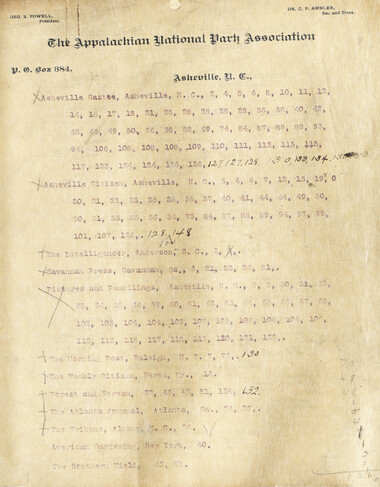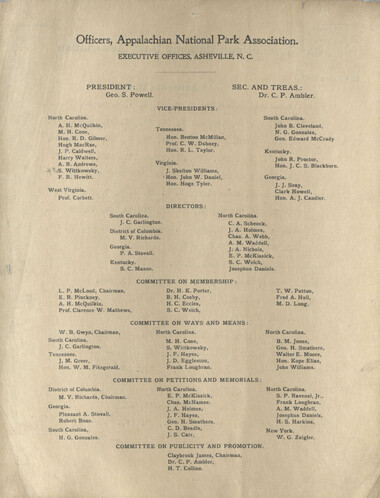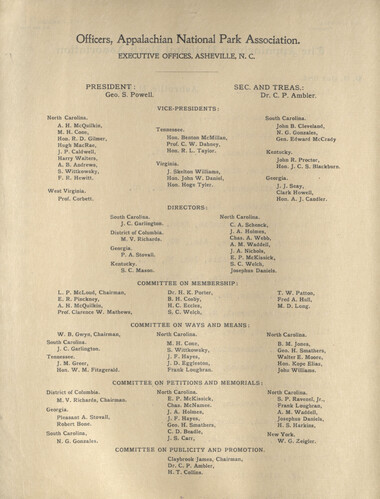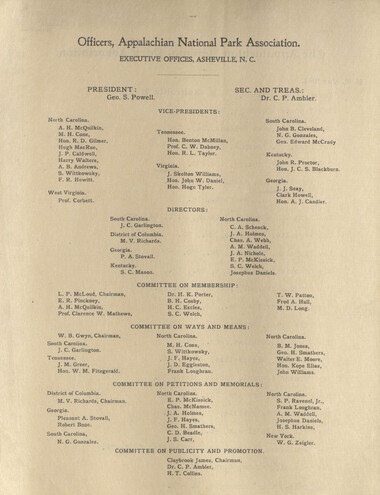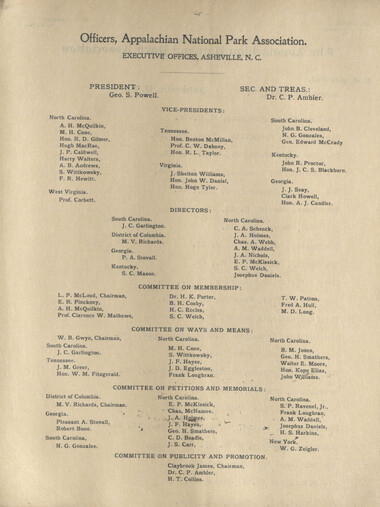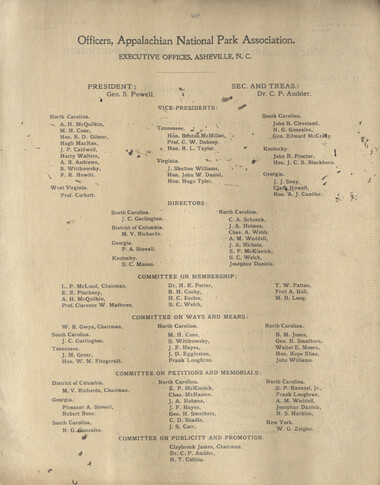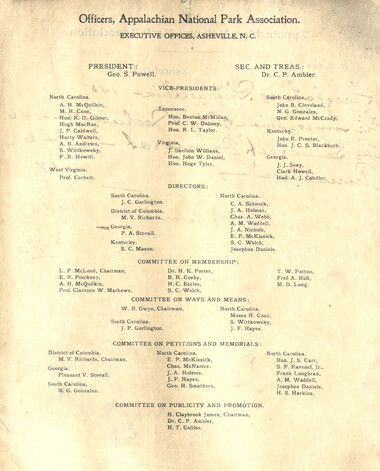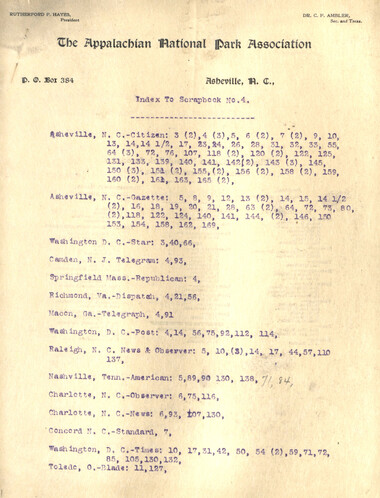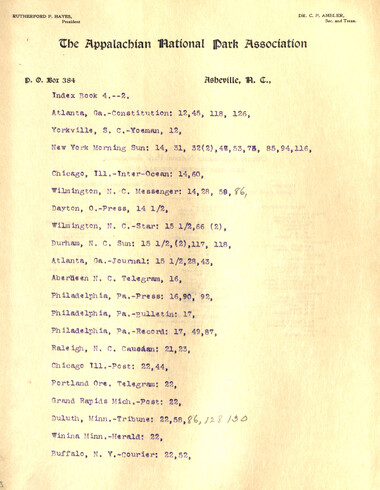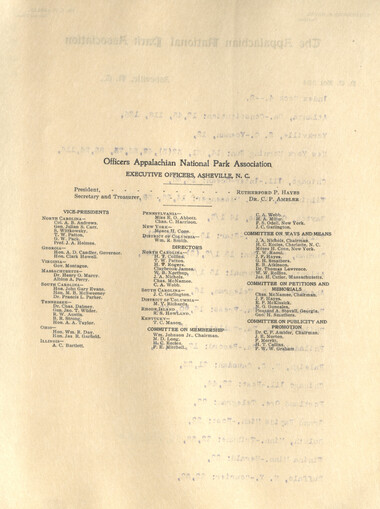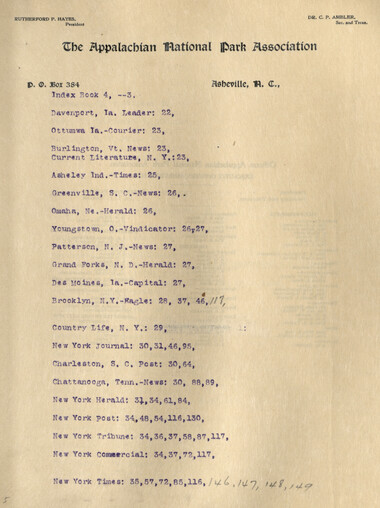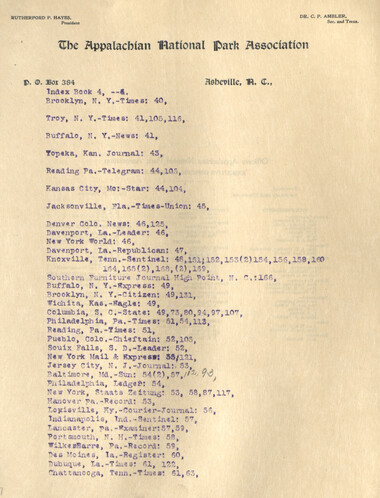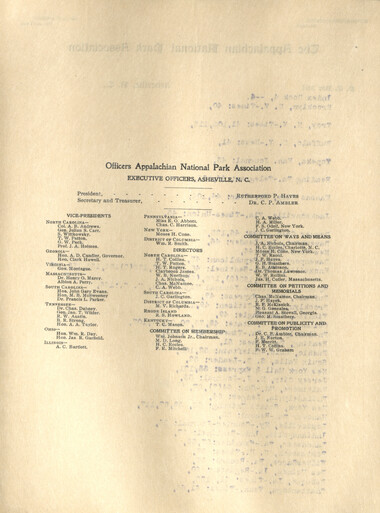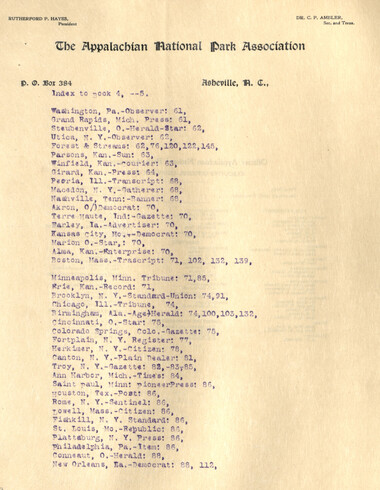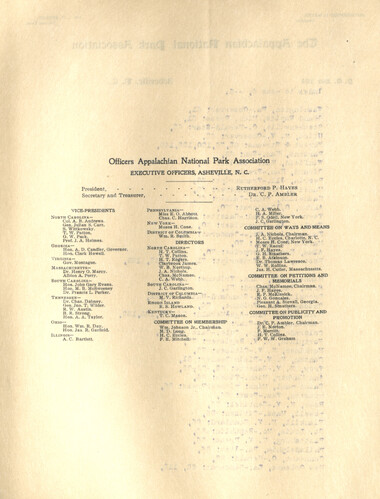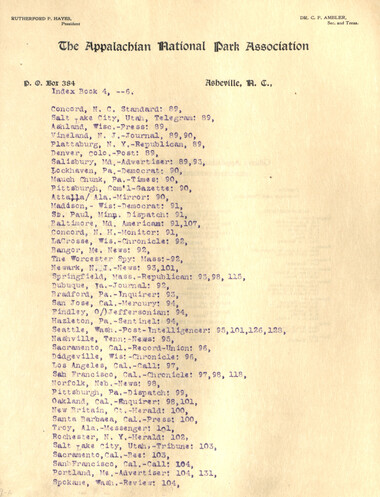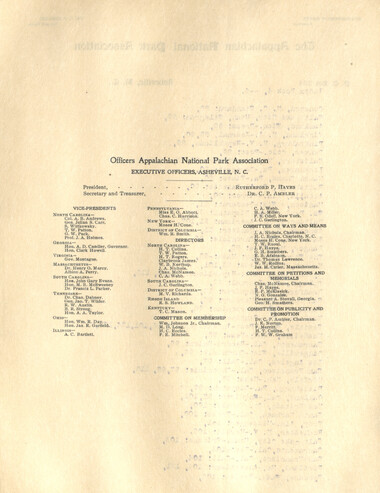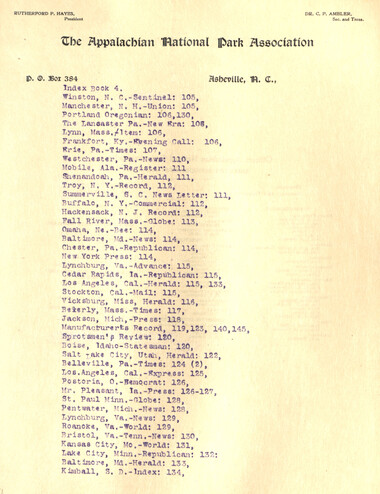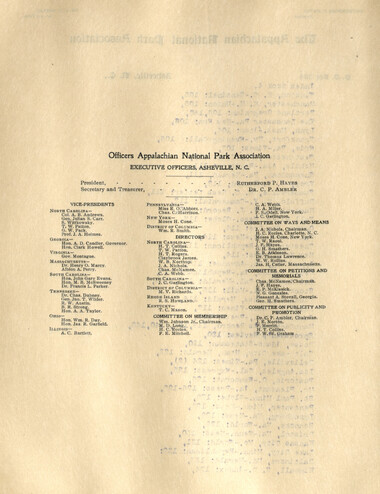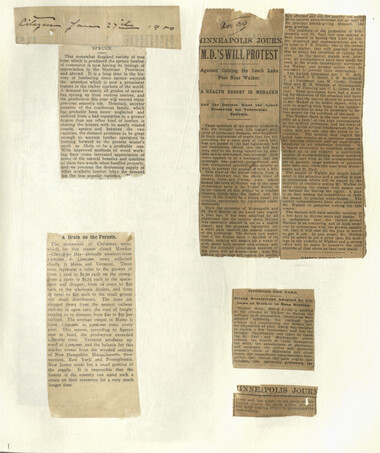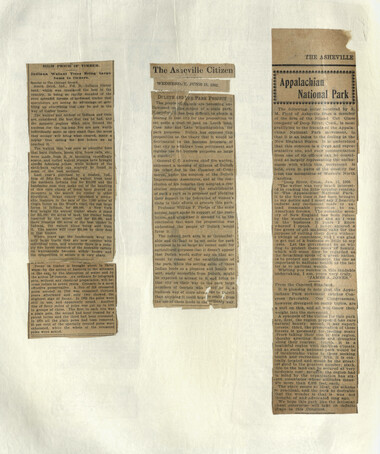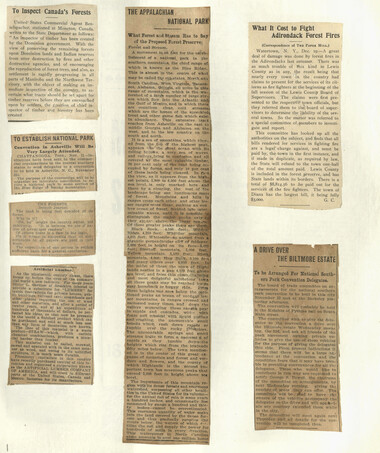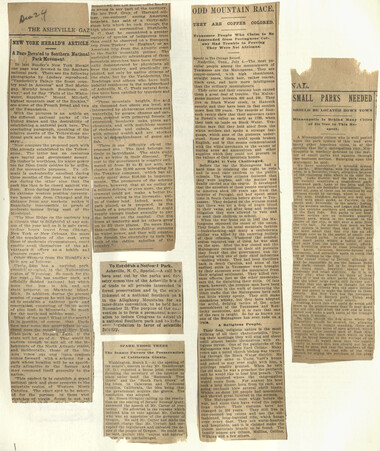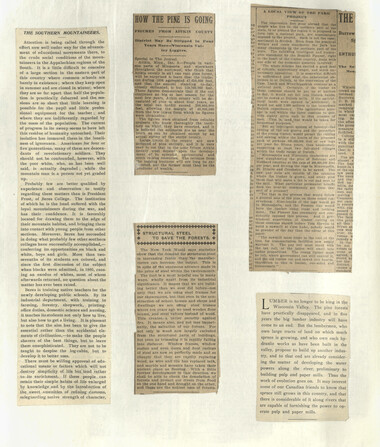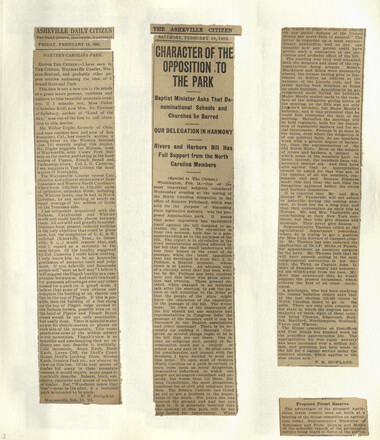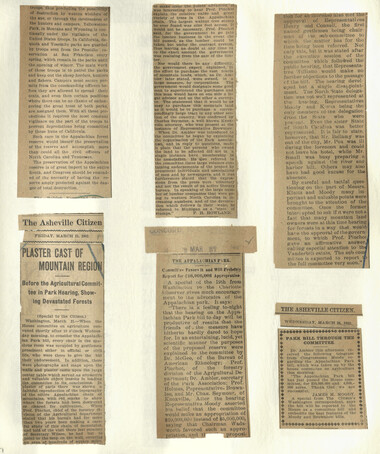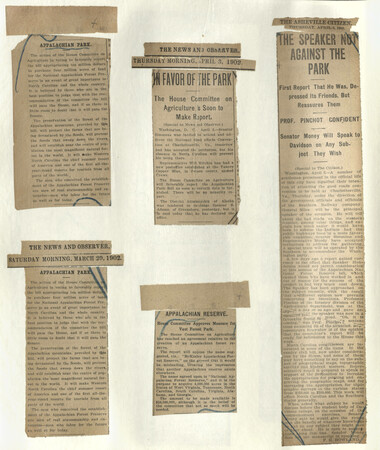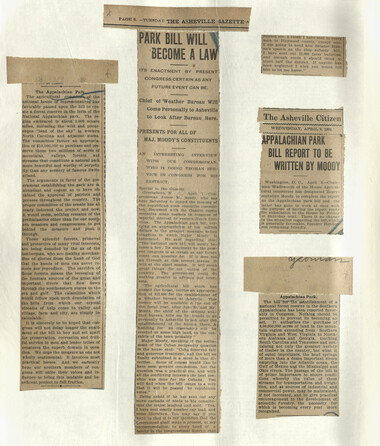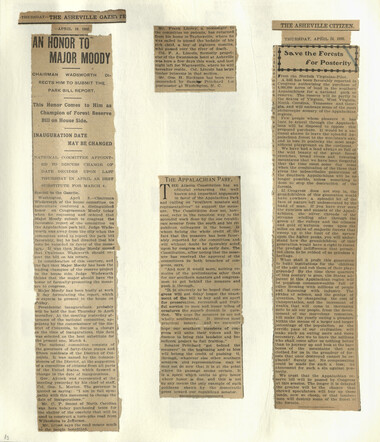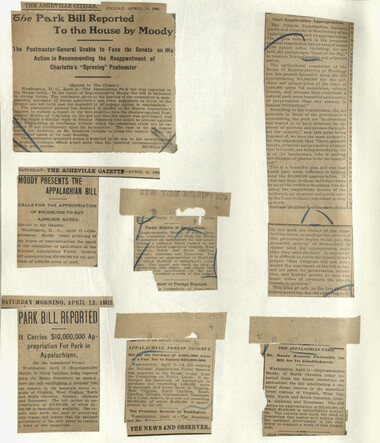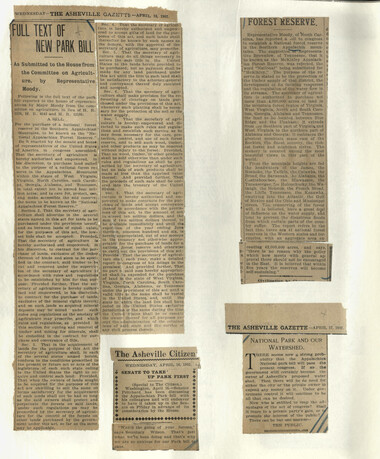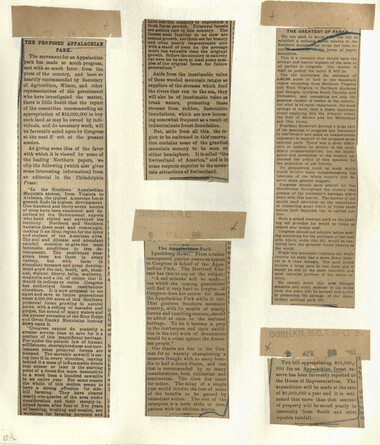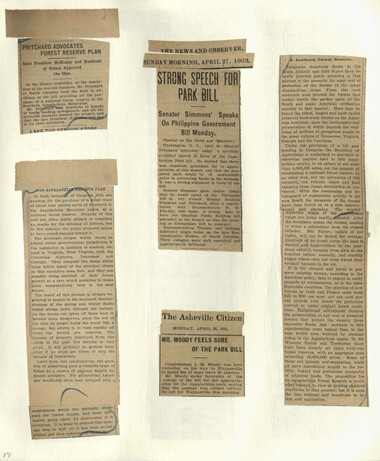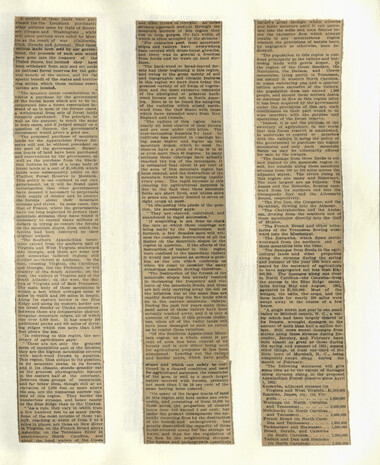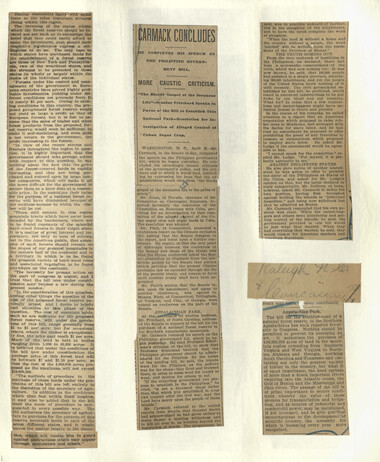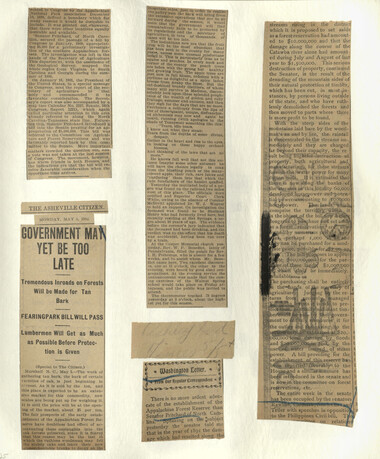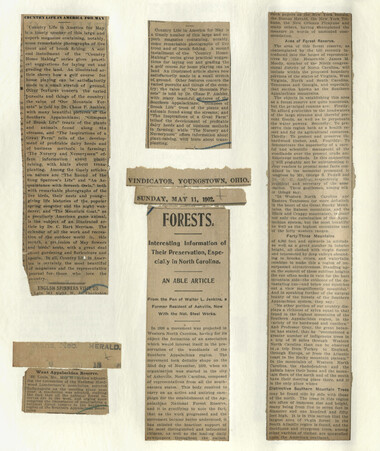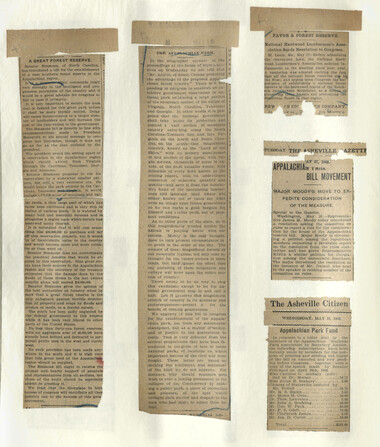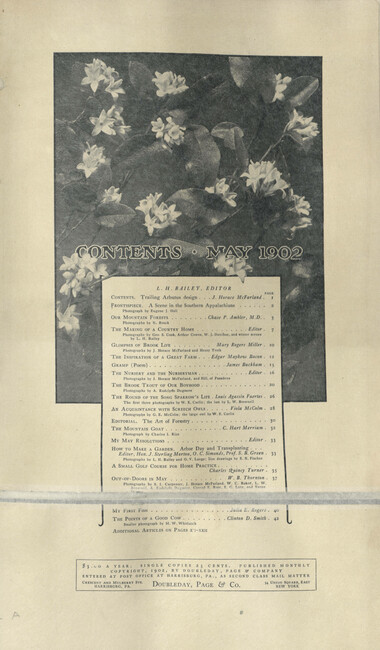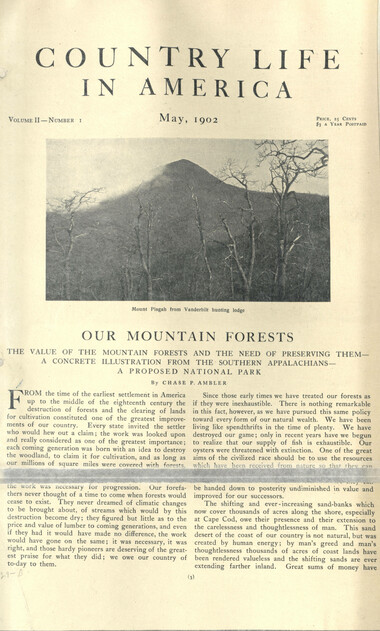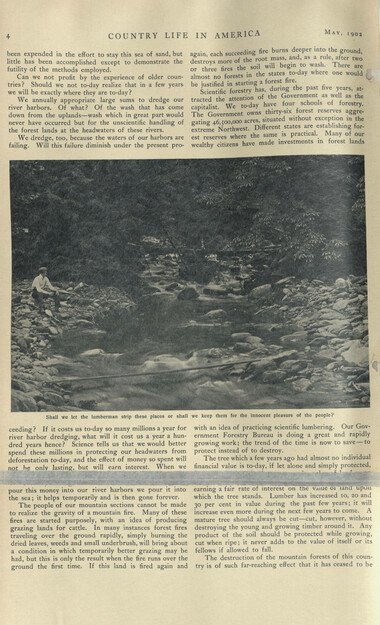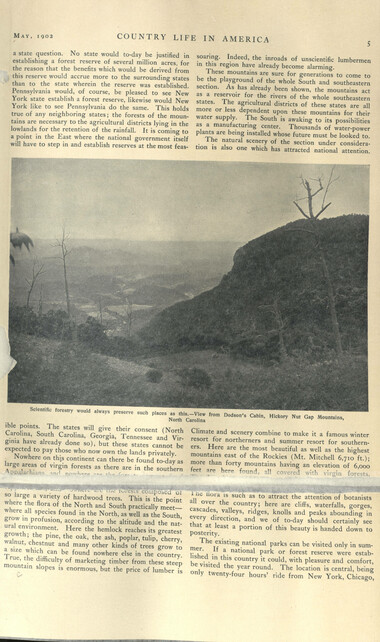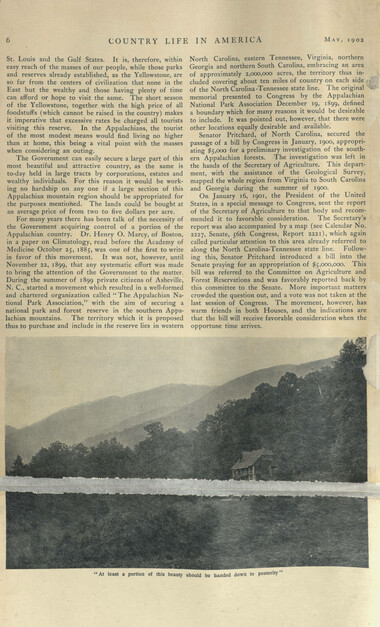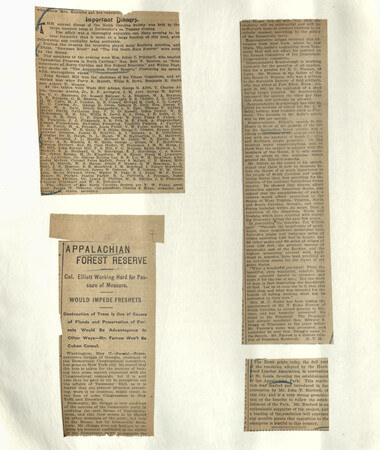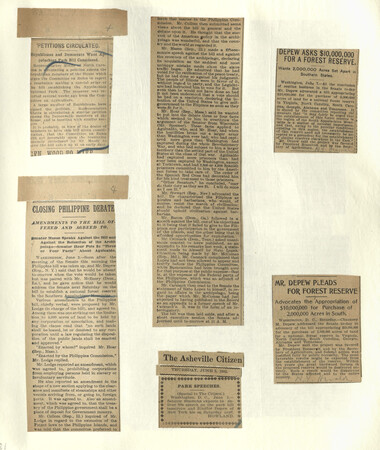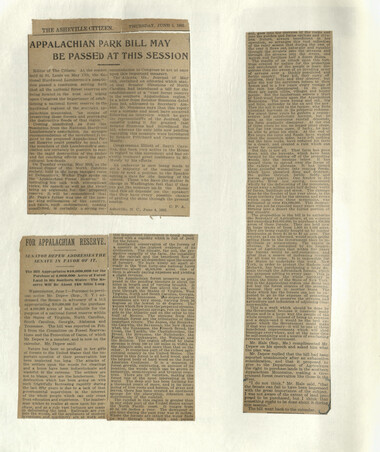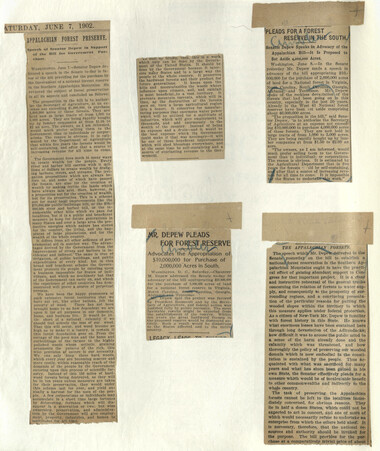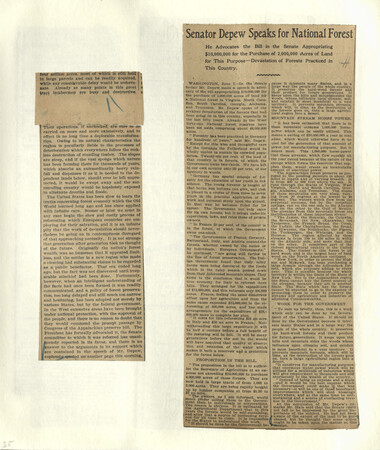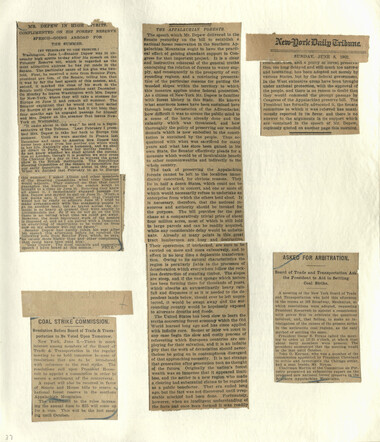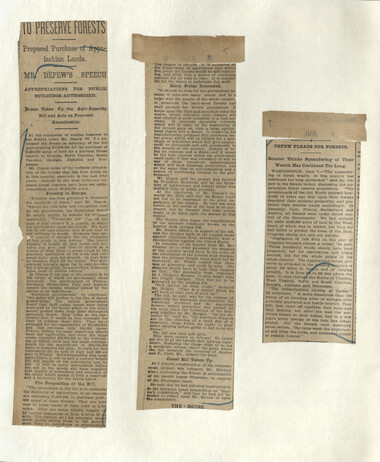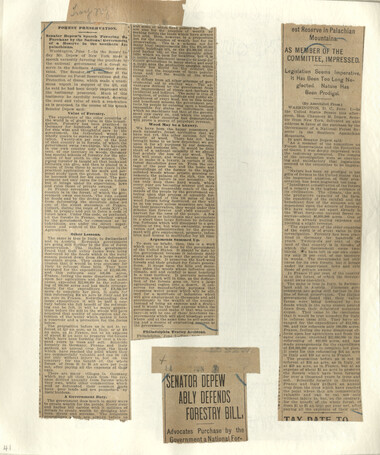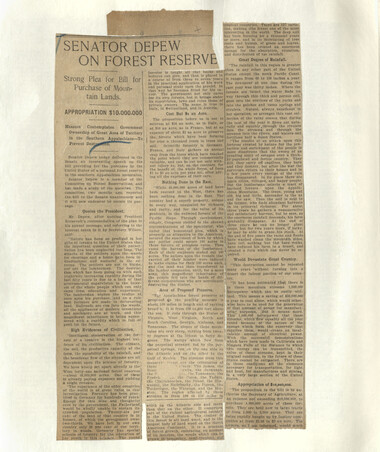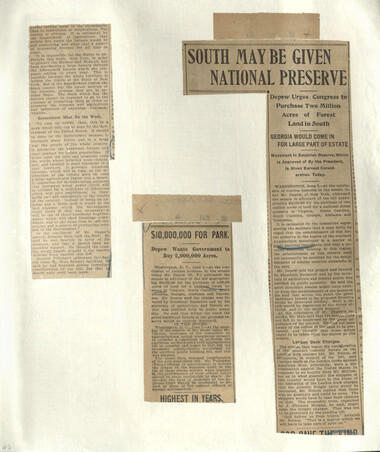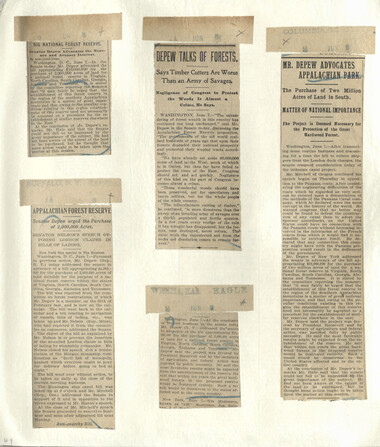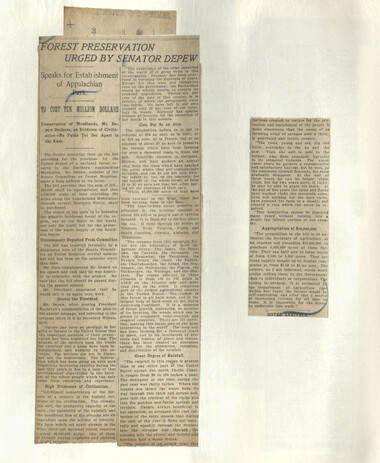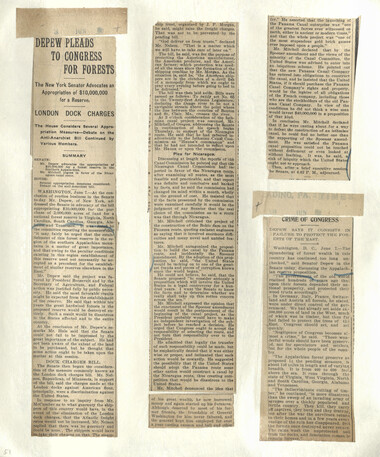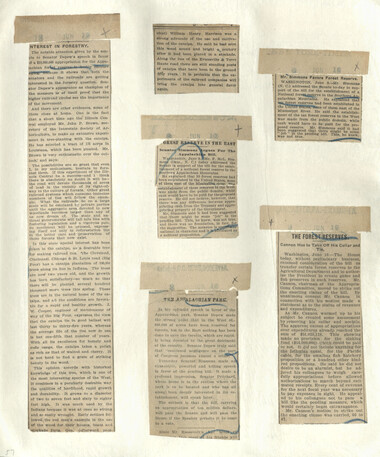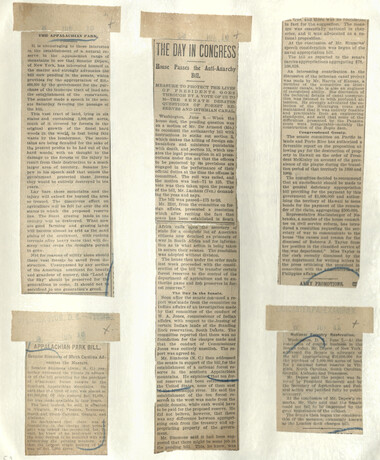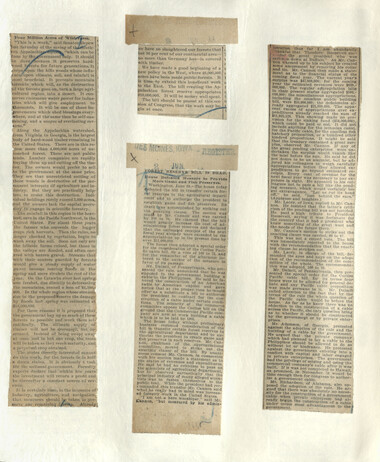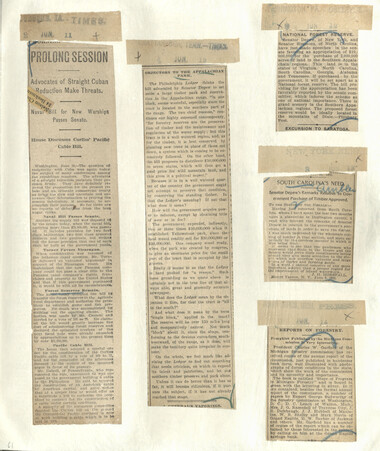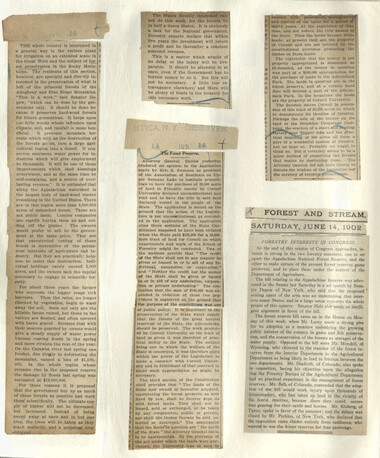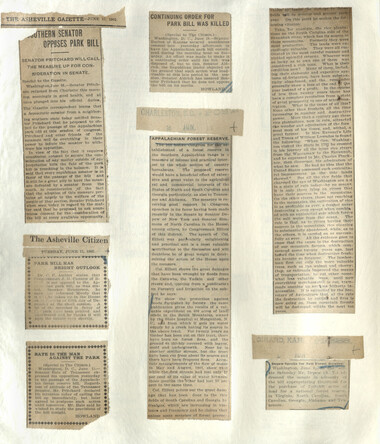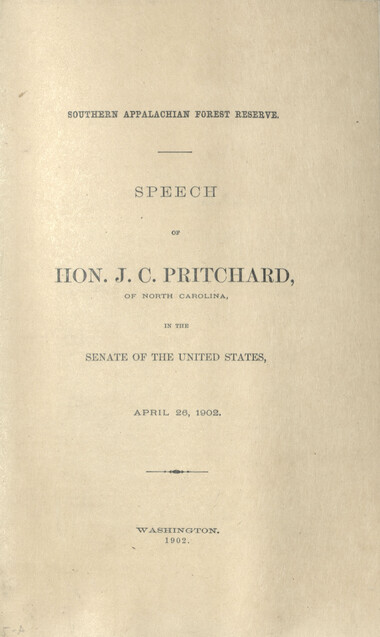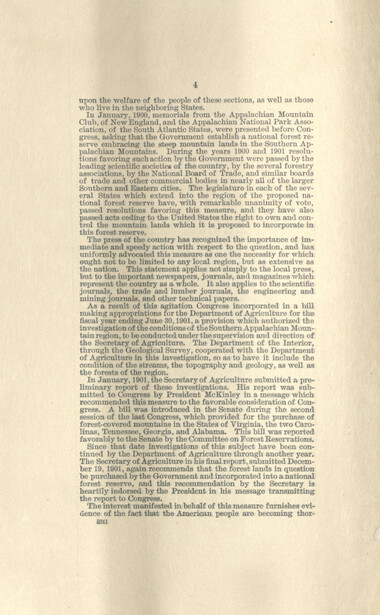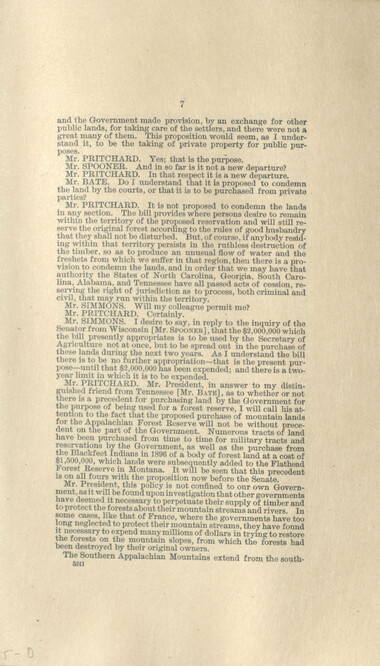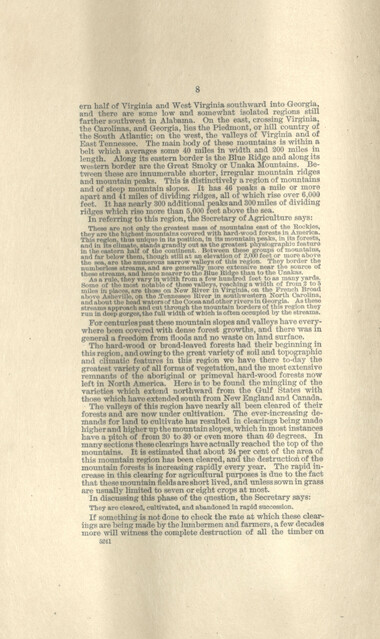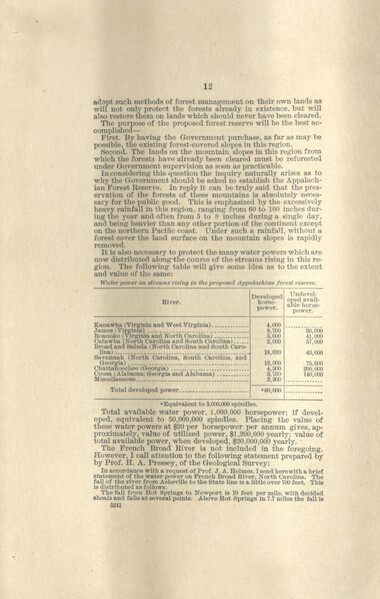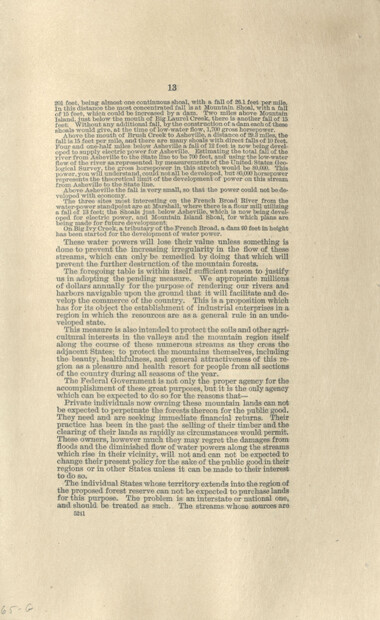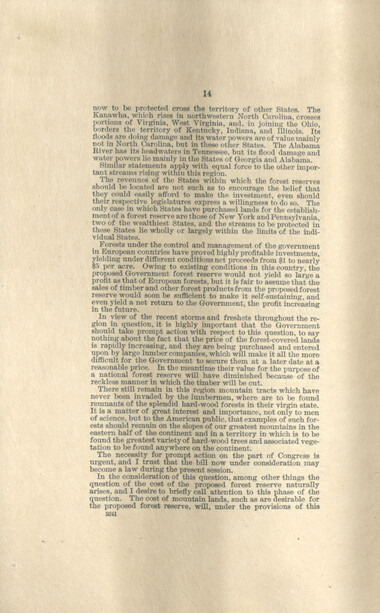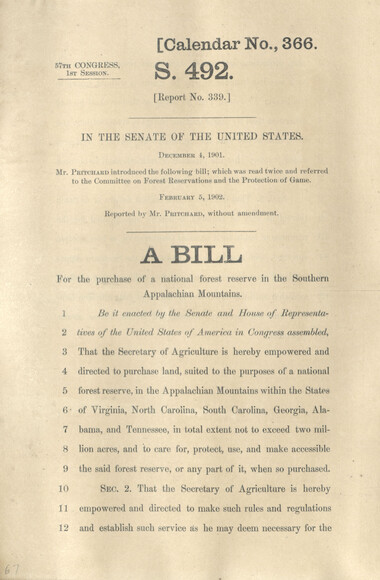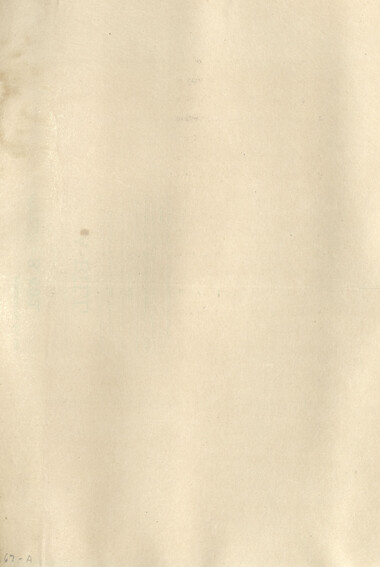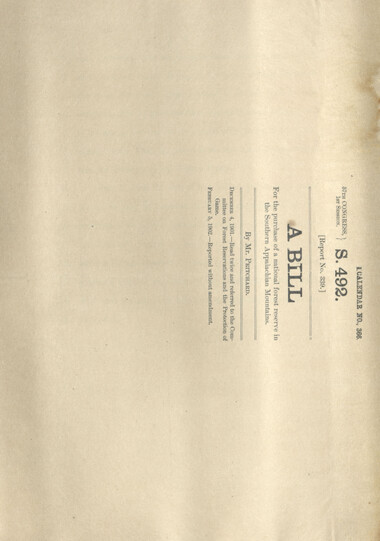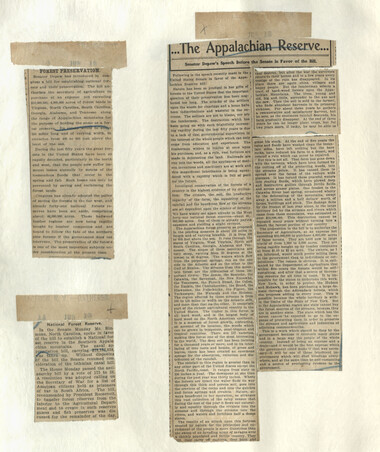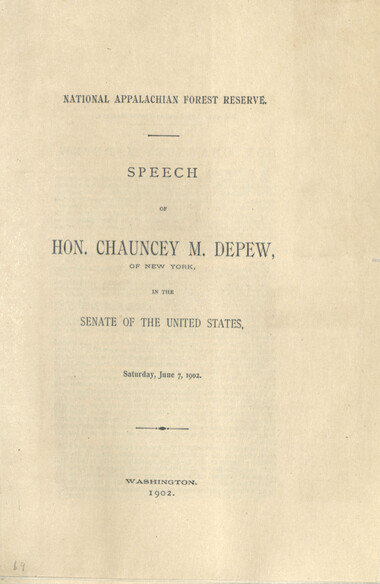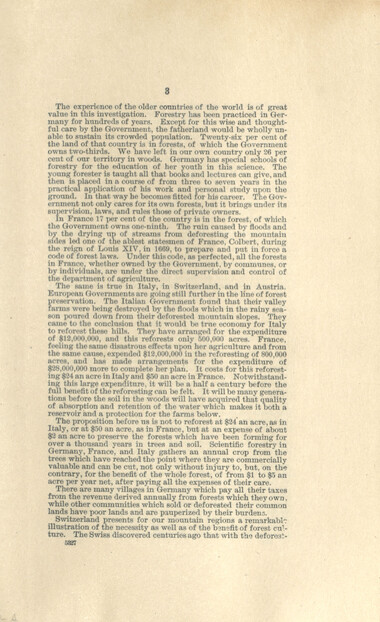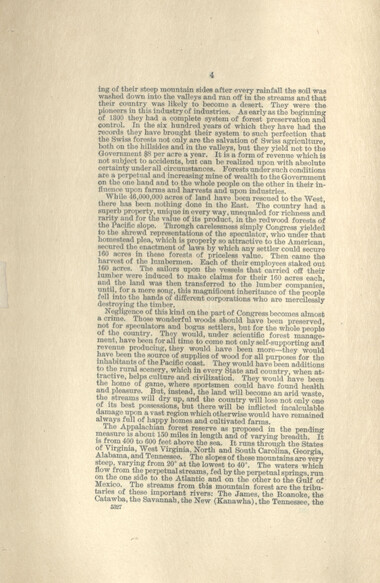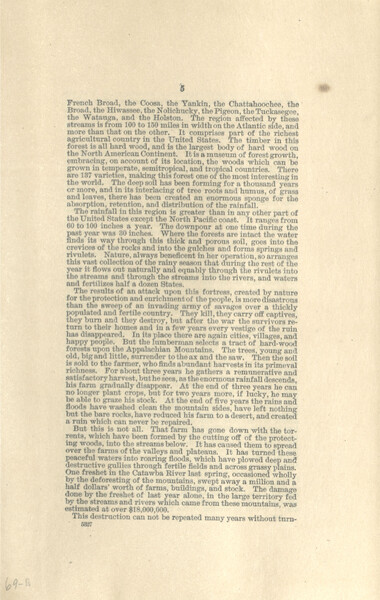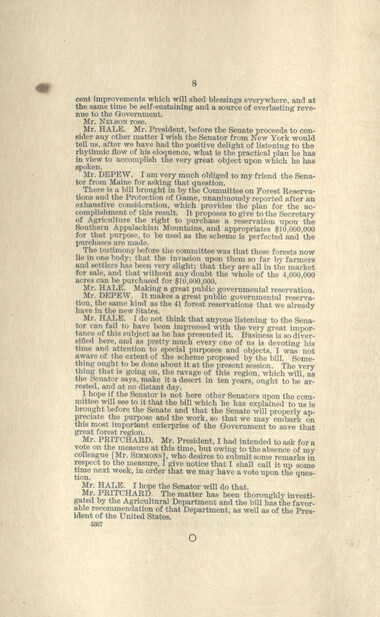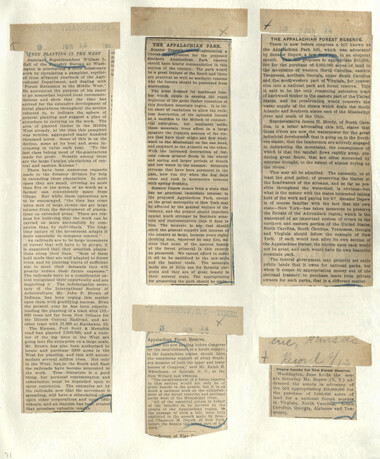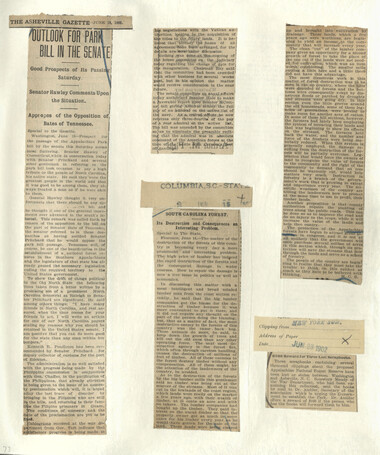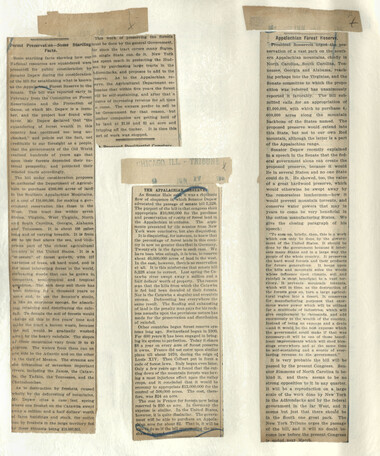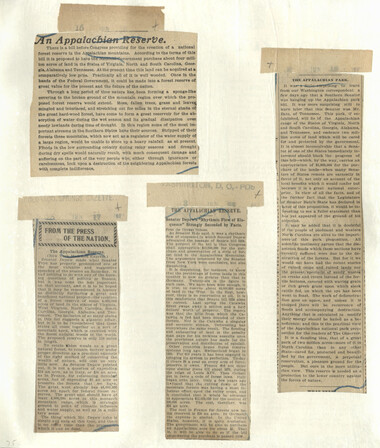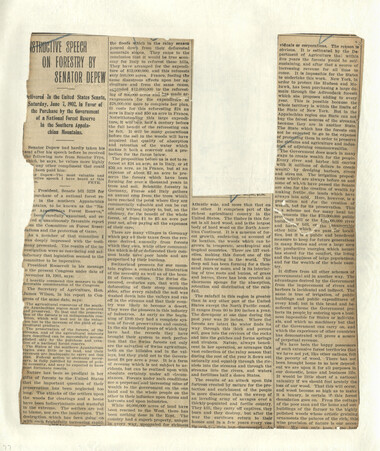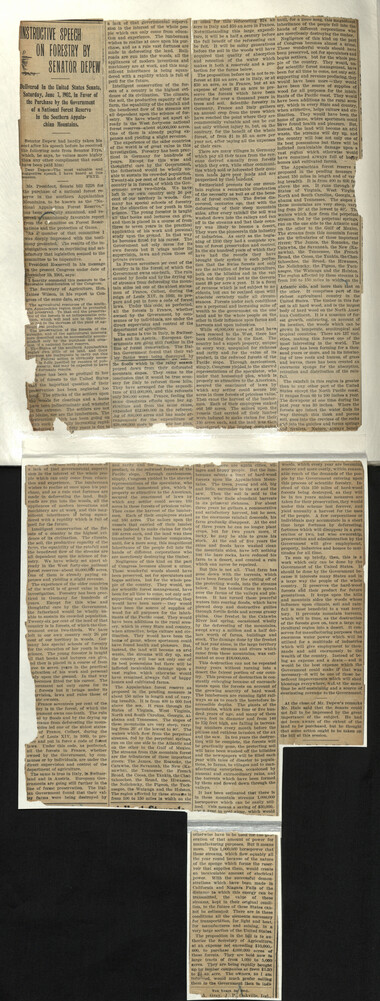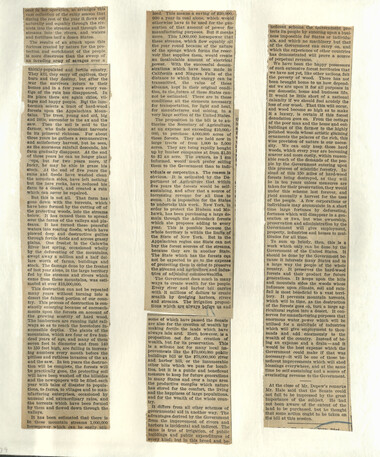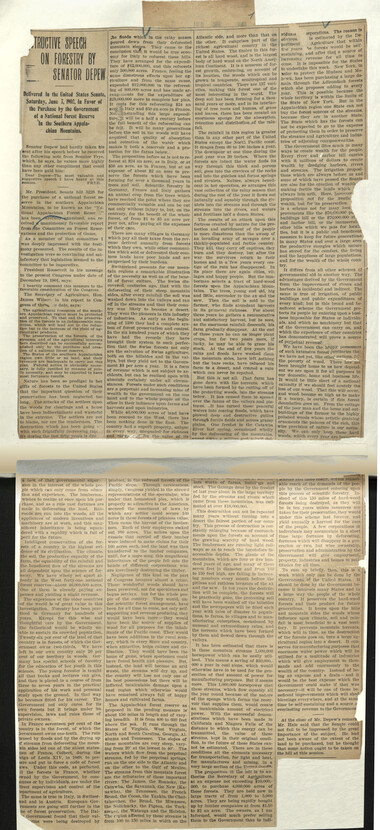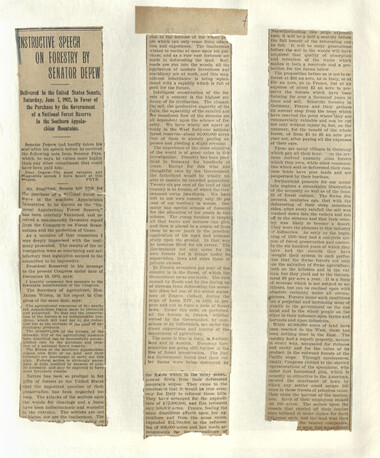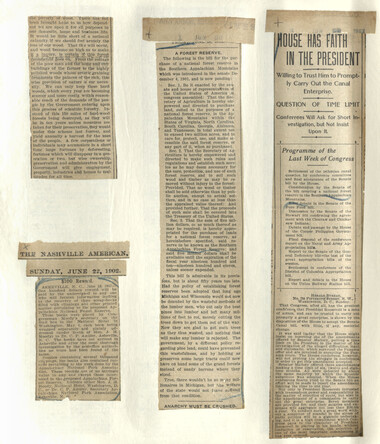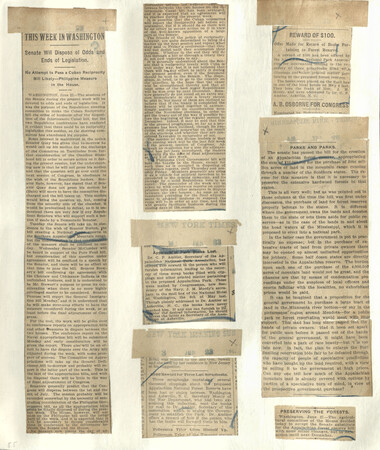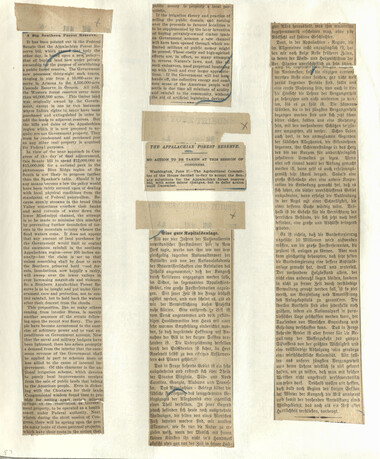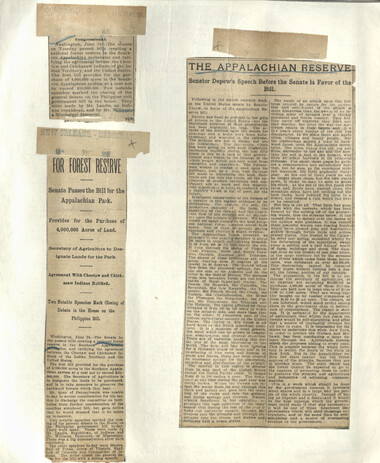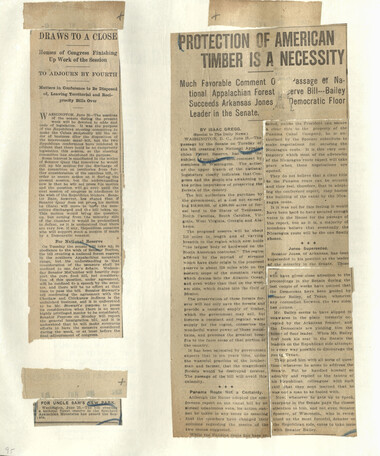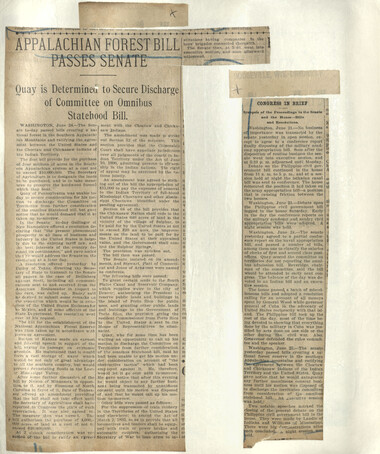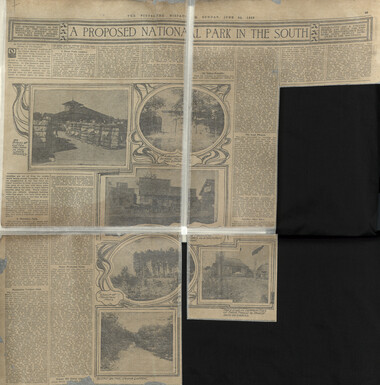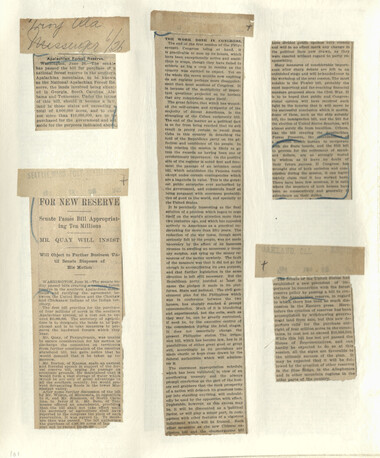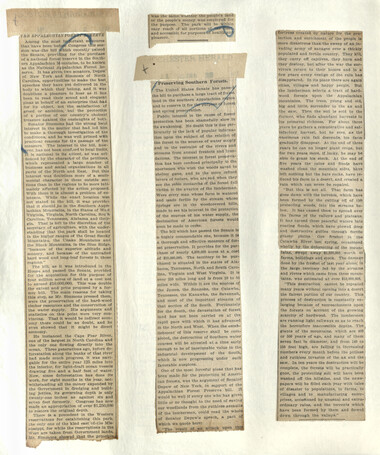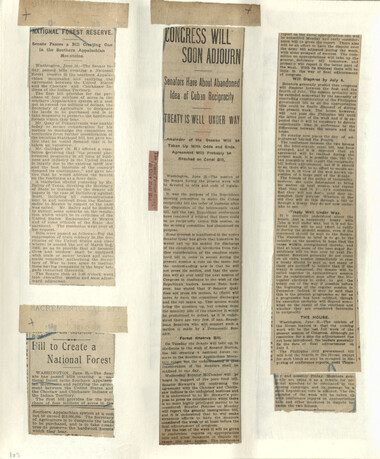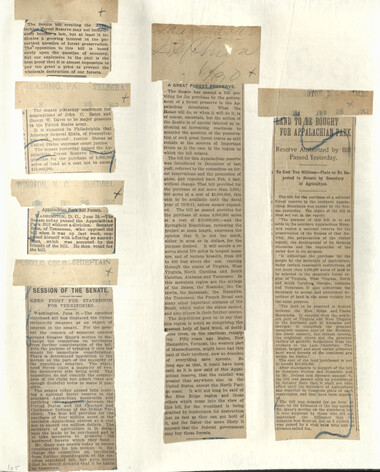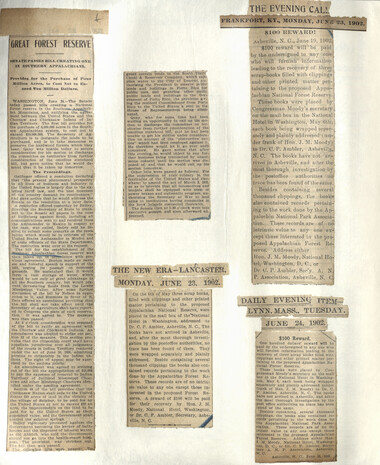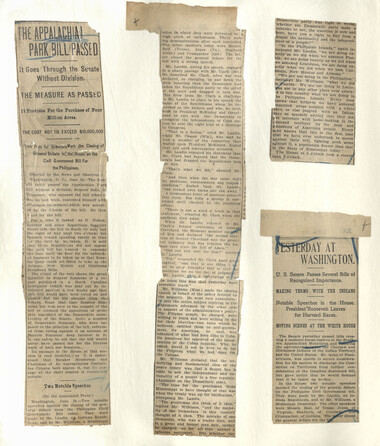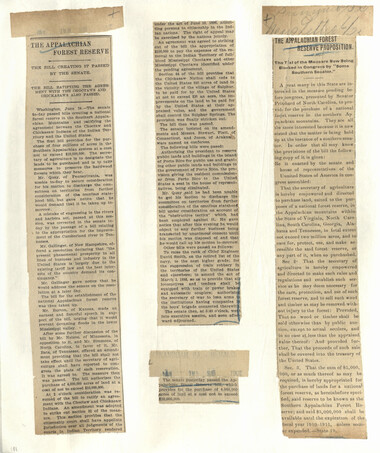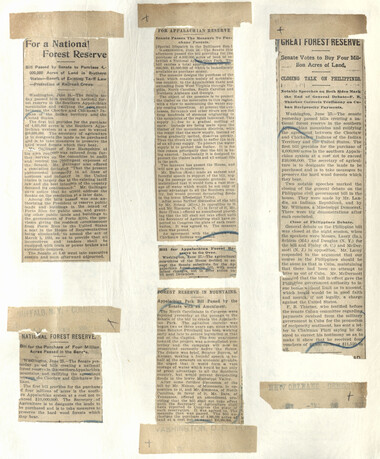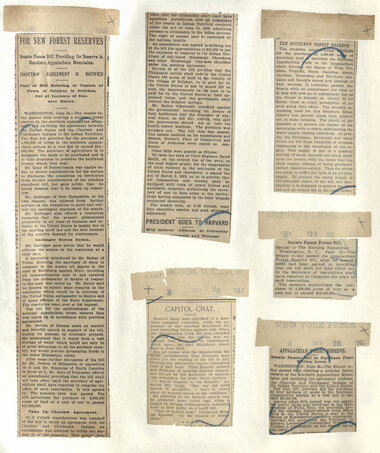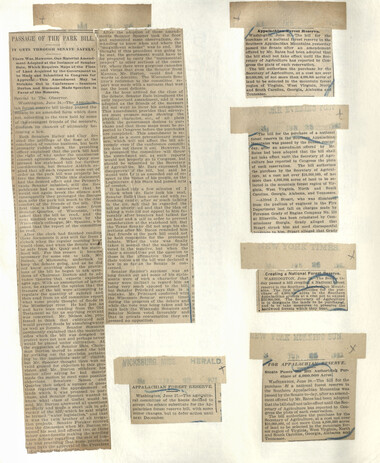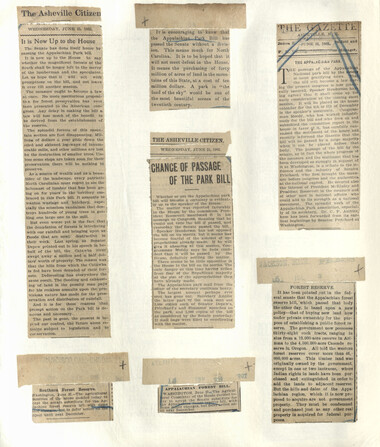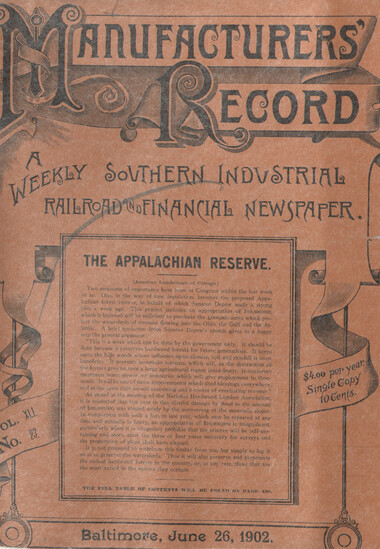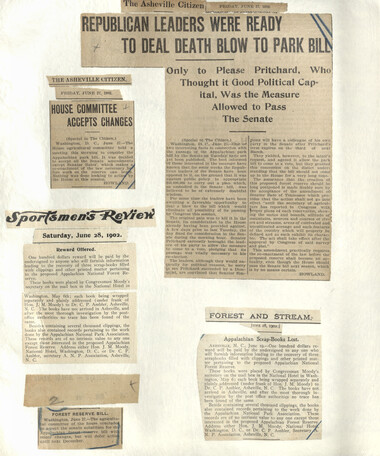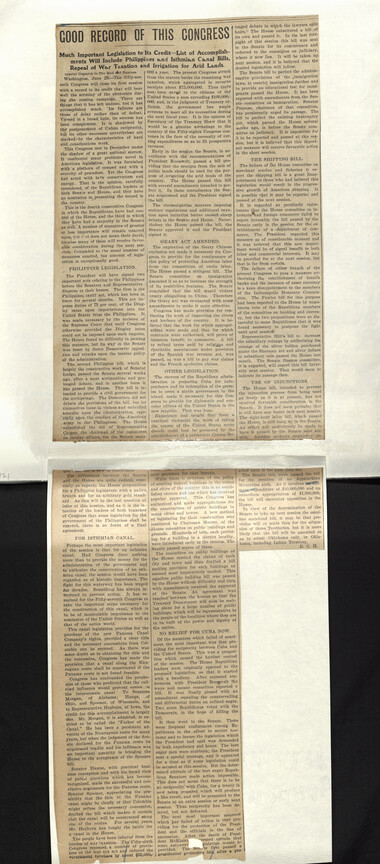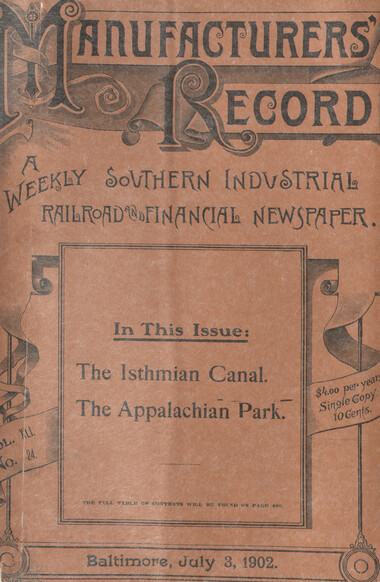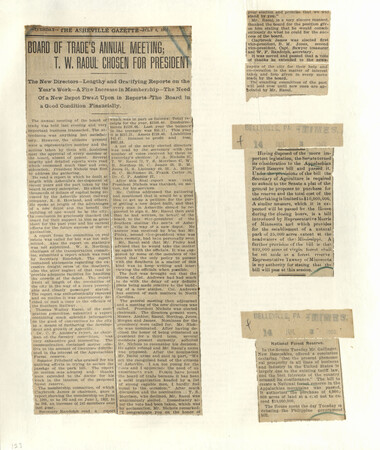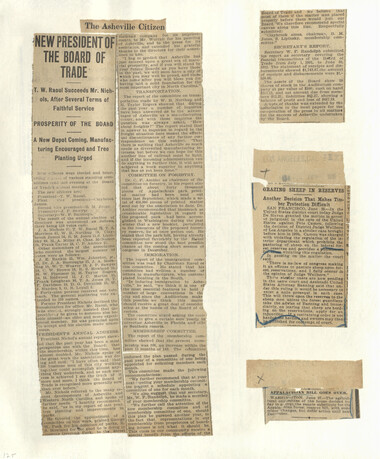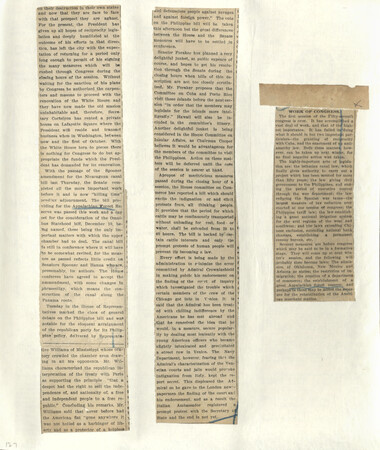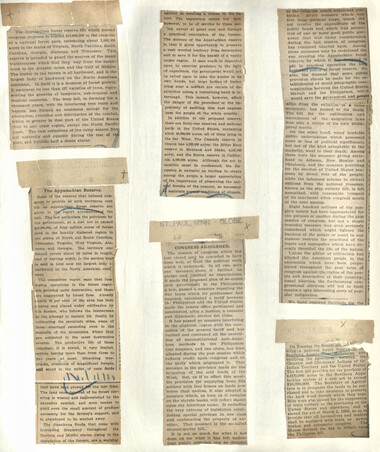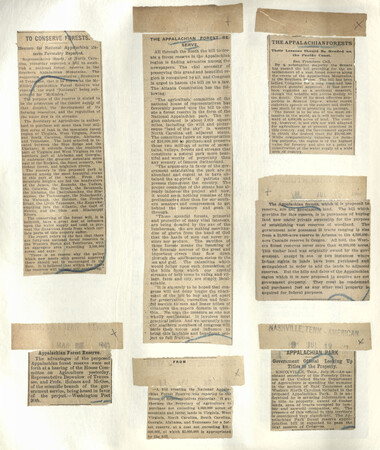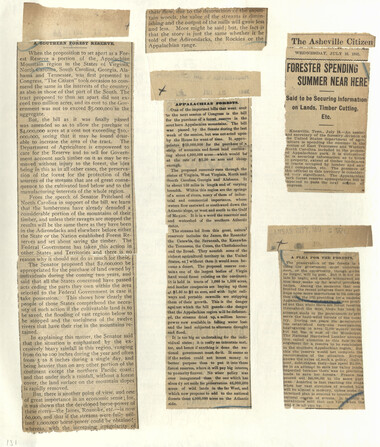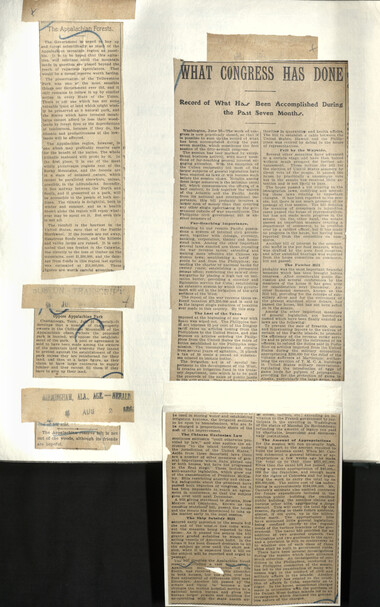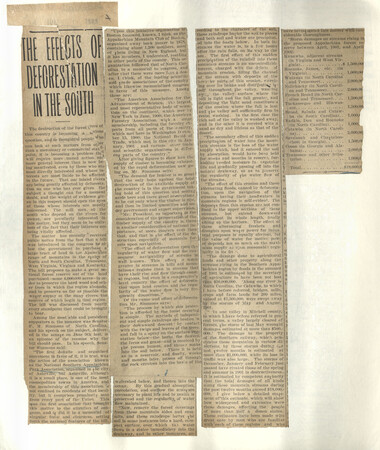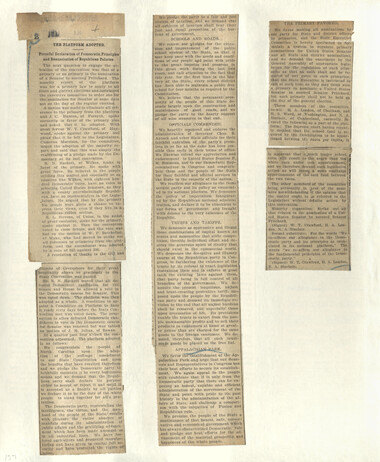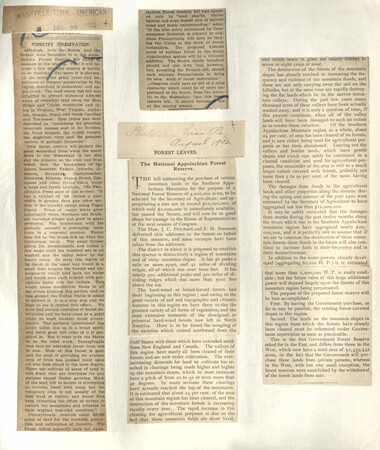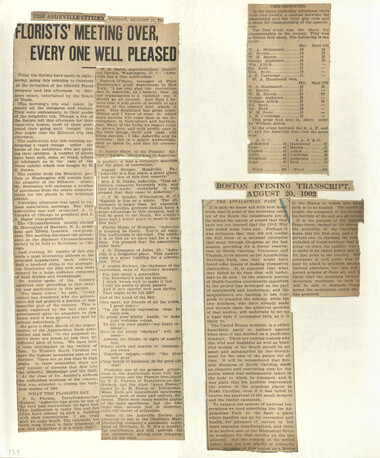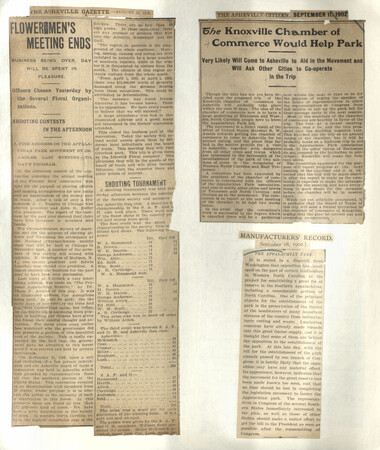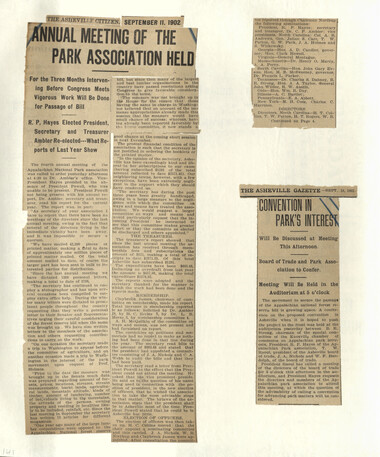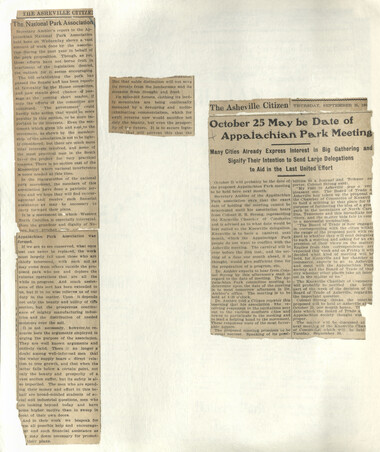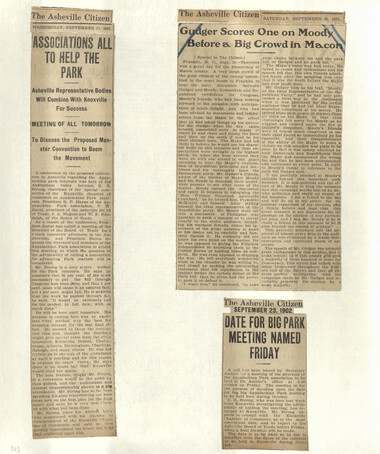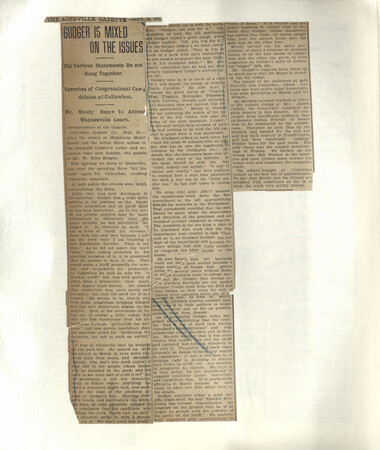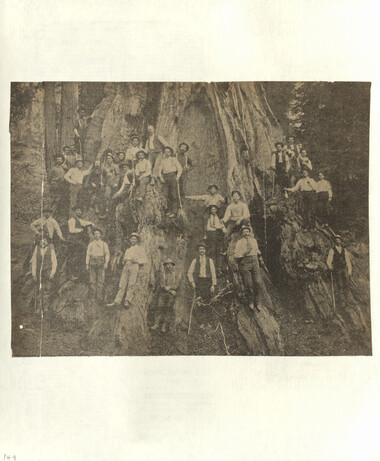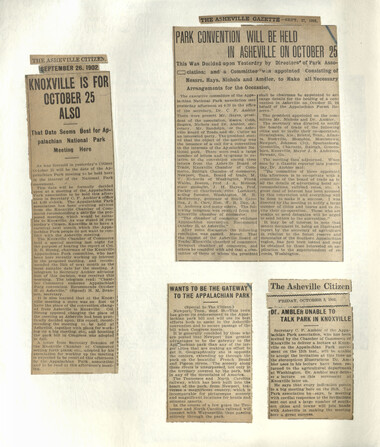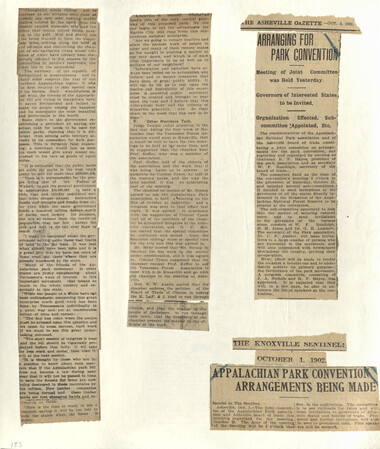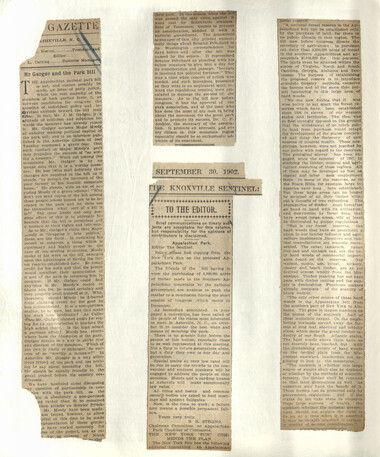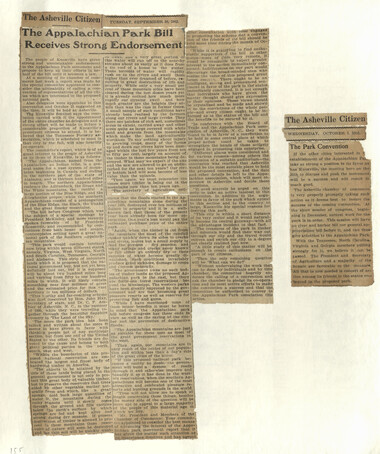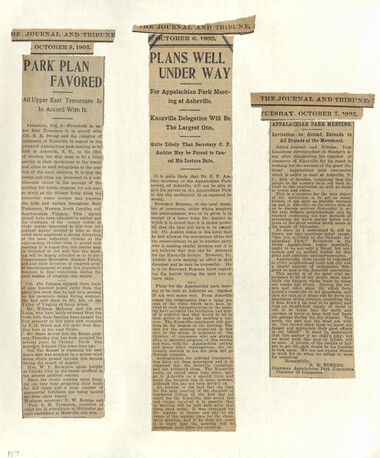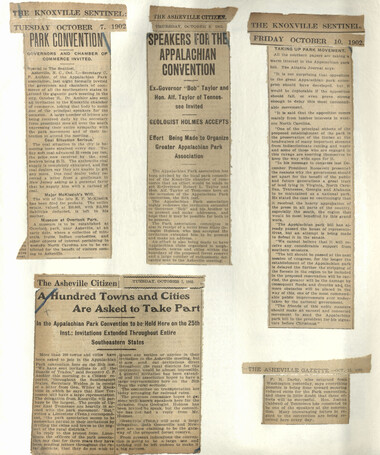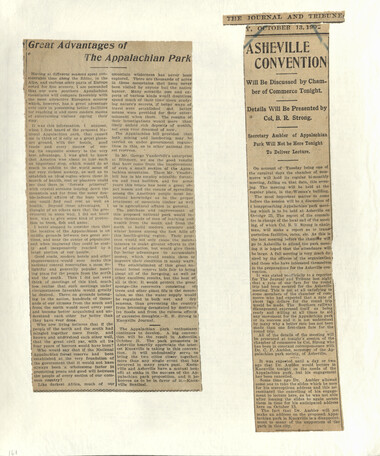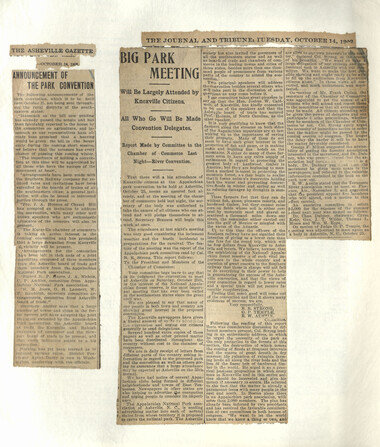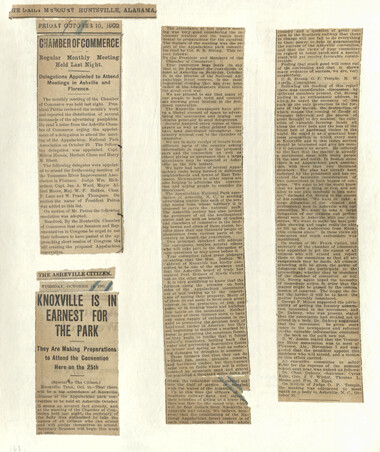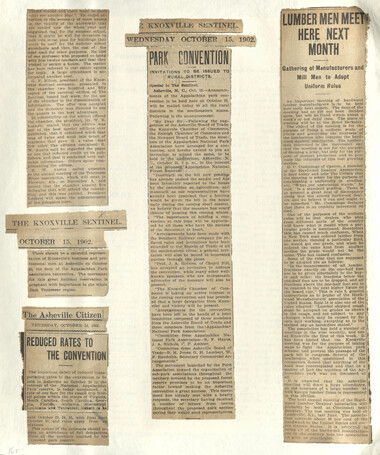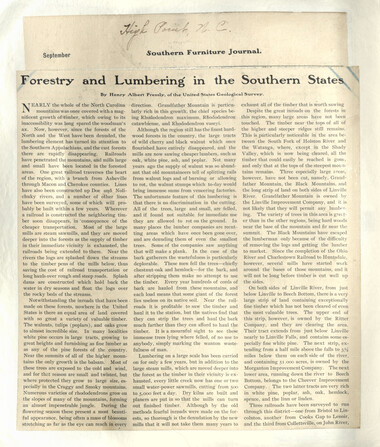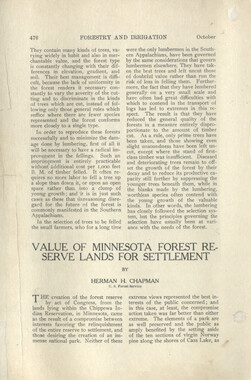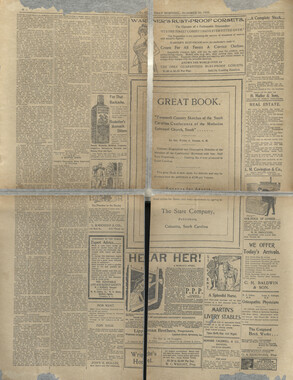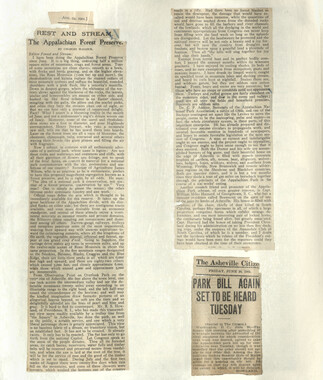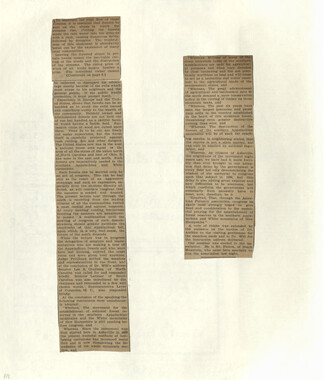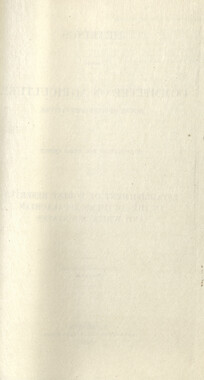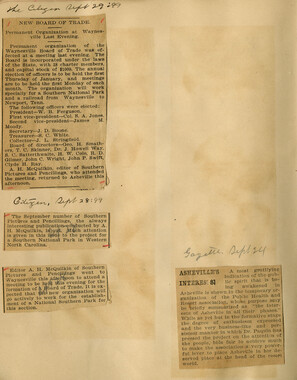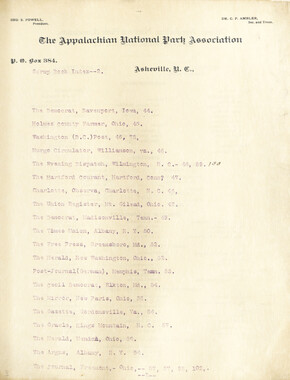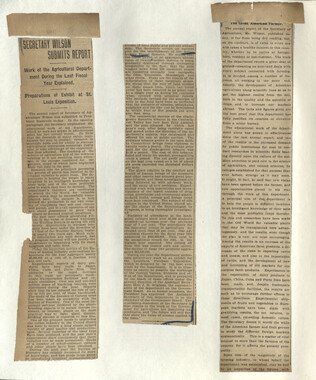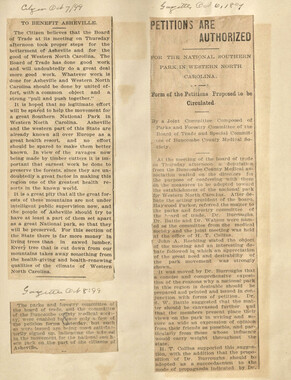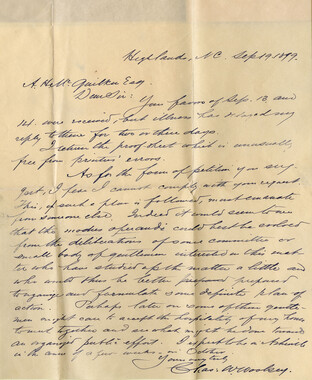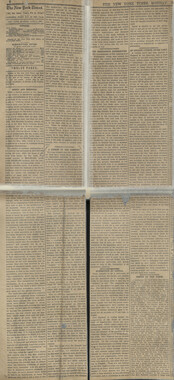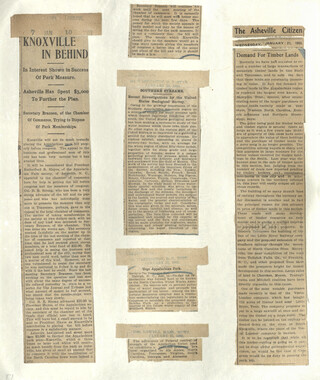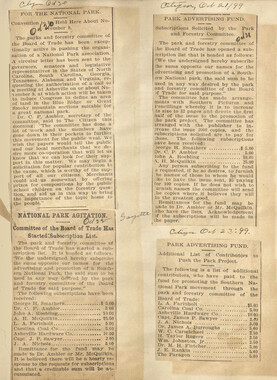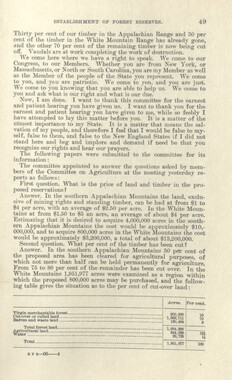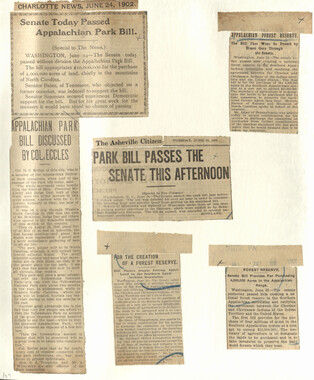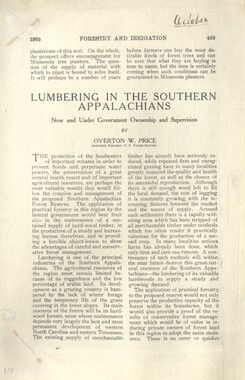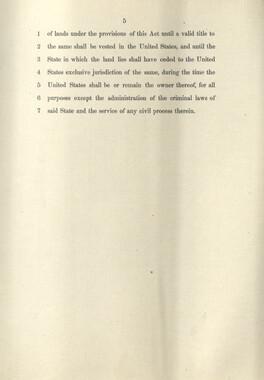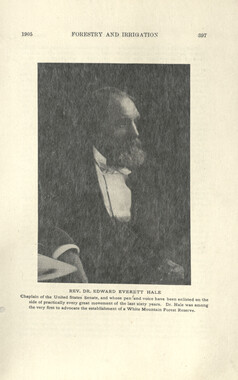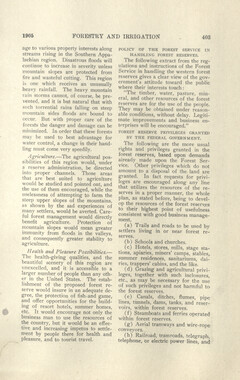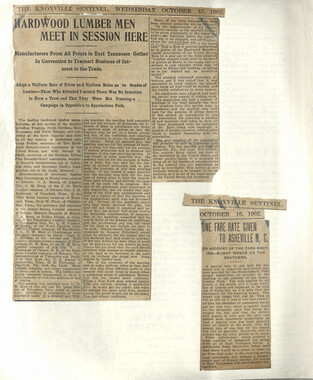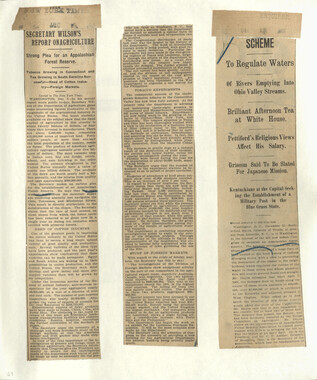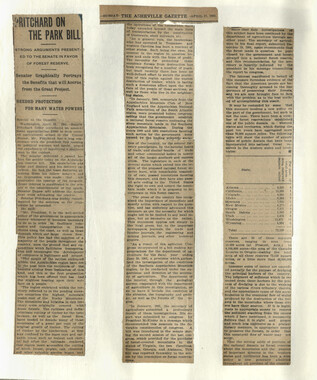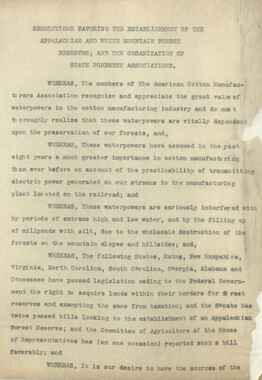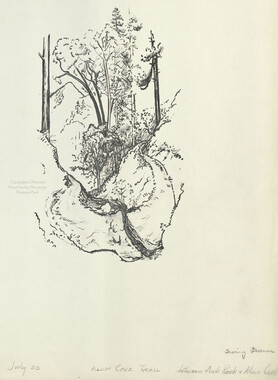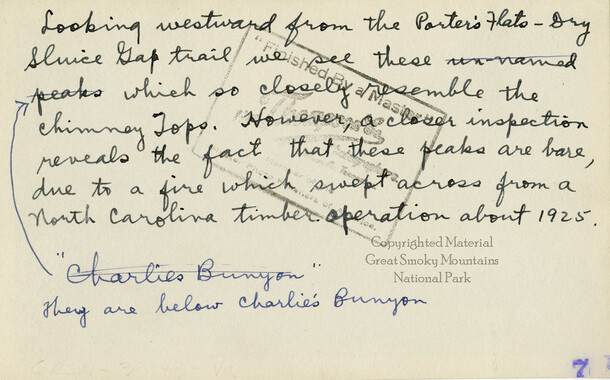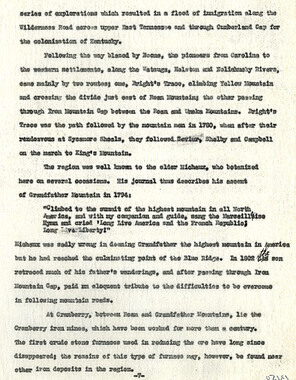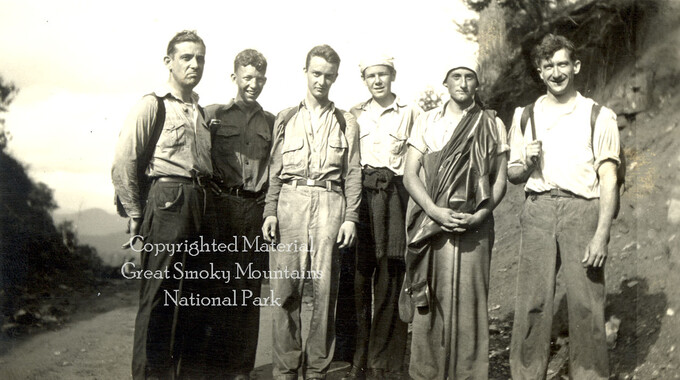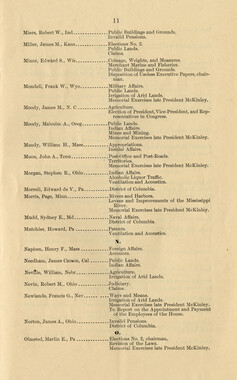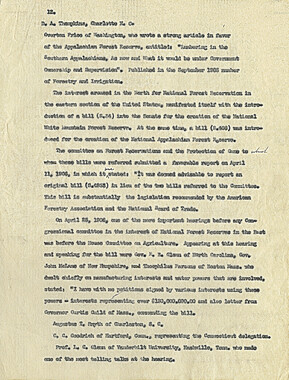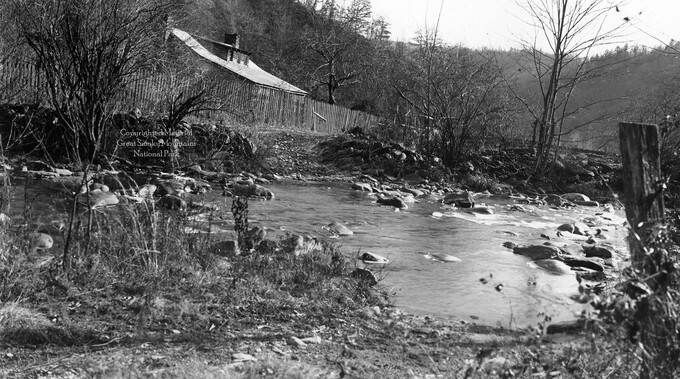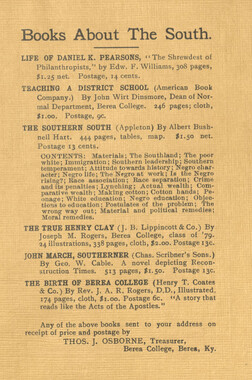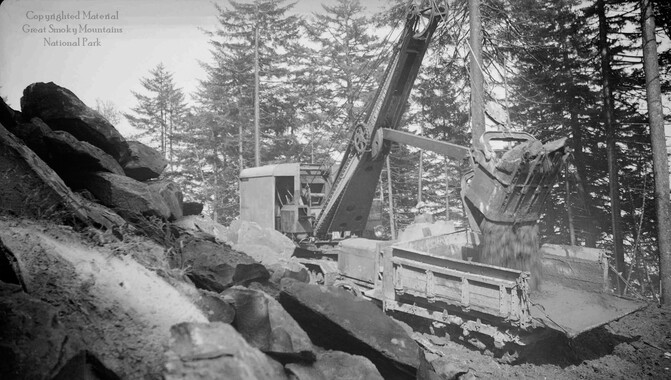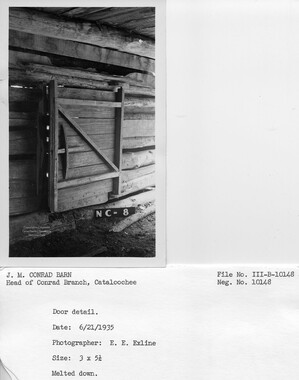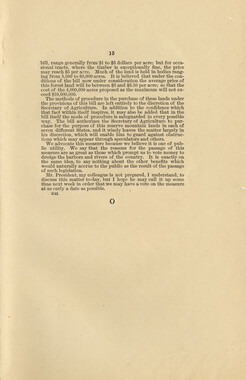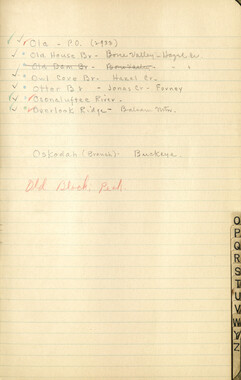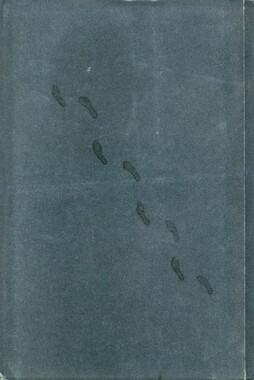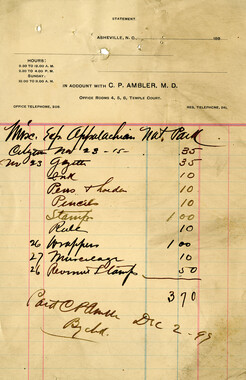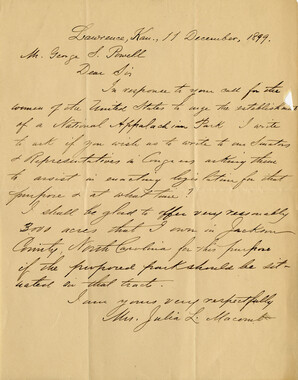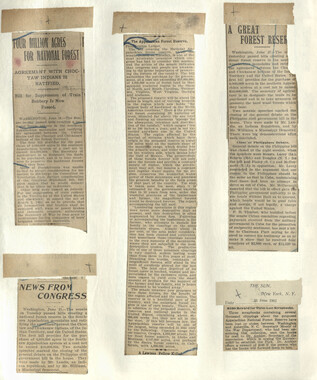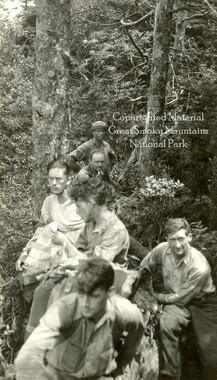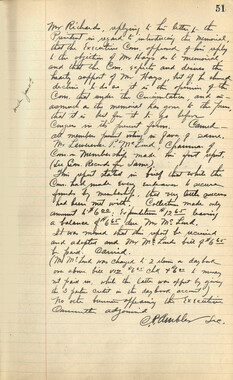Western Carolina University (21)
View all
- Canton Champion Fibre Company (2308)
- Cherokee Traditions (291)
- Civil War in Southern Appalachia (165)
- Craft Revival (1942)
- George Masa Collection (135)
- Great Smoky Mountains - A Park for America (2901)
- Highlights from Western Carolina University (422)
- Horace Kephart (941)
- Journeys Through Jackson (159)
- LGBTQIA+ Archive of Jackson County (85)
- Oral Histories of Western North Carolina (314)
- Picturing Appalachia (6798)
- Stories of Mountain Folk (413)
- Travel Western North Carolina (153)
- Western Carolina University Fine Art Museum Vitreograph Collection (129)
- Western Carolina University Herbarium (92)
- Western Carolina University: Making Memories (738)
- Western Carolina University Publications (2491)
- Western Carolina University Restricted Electronic Theses and Dissertations (146)
- Western North Carolina Regional Maps (71)
- World War II in Southern Appalachia (131)
University of North Carolina Asheville (6)
View all
- Allanstand Cottage Industries (62)
- Appalachian National Park Association (53)
- Bennett, Kelly, 1890-1974 (1463)
- Berry, Walter (76)
- Brasstown Carvers (40)
- Carver, George Washington, 1864?-1943 (26)
- Cathey, Joseph, 1803-1874 (1)
- Champion Fibre Company (233)
- Champion Paper and Fibre Company (297)
- Cherokee Indian Fair Association (16)
- Cherokee Language Program (22)
- Crowe, Amanda (40)
- Edmonston, Thomas Benton, 1842-1907 (7)
- Ensley, A. L. (Abraham Lincoln), 1865-1948 (275)
- Fromer, Irving Rhodes, 1913-1994 (70)
- George Butz (BFS 1907) (46)
- Goodrich, Frances Louisa (120)
- Grant, George Alexander, 1891-1964 (96)
- Heard, Marian Gladys (60)
- Kephart, Calvin, 1883-1969 (15)
- Kephart, Horace, 1862-1931 (313)
- Kephart, Laura, 1862-1954 (39)
- Laney, Gideon Thomas, 1889-1976 (439)
- Masa, George, 1881-1933 (61)
- McElhinney, William Julian, 1896-1953 (44)
- Niggli, Josephina, 1910-1983 (10)
- North Carolina Park Commission (105)
- Osborne, Kezia Stradley (9)
- Owens, Samuel Robert, 1918-1995 (11)
- Penland Weavers and Potters (36)
- Roberts, Vivienne (15)
- Roth, Albert, 1890-1974 (142)
- Schenck, Carl Alwin, 1868-1955 (1)
- Sherrill's Photography Studio (2565)
- Southern Highland Handicraft Guild (127)
- Southern Highlanders, Inc. (71)
- Stalcup, Jesse Bryson (46)
- Stearns, I. K. (213)
- Thompson, James Edward, 1880-1976 (226)
- United States. Indian Arts and Crafts Board (130)
- USFS (683)
- Vance, Zebulon Baird, 1830-1894 (1)
- Weaver, Zebulon, 1872-1948 (58)
- Western Carolina College (230)
- Western Carolina Teachers College (282)
- Western Carolina University (2008)
- Western Carolina University. Mountain Heritage Center (18)
- Whitman, Walt, 1819-1892 (10)
- Wilburn, Hiram Coleman, 1880-1967 (73)
- Williams, Isadora (3)
- Cain, Doreyl Ammons (0)
- Crittenden, Lorraine (0)
- Rhodes, Judy (0)
- Smith, Edward Clark (0)
- Appalachian Region, Southern (2693)
- Asheville (N.C.) (1936)
- Avery County (N.C.) (26)
- Blount County (Tenn.) (195)
- Buncombe County (N.C.) (1672)
- Cherokee County (N.C.) (283)
- Clay County (N.C.) (556)
- Graham County (N.C.) (236)
- Great Smoky Mountains National Park (N.C. and Tenn.) (519)
- Haywood County (N.C.) (3569)
- Henderson County (N.C.) (70)
- Jackson County (N.C.) (4913)
- Knox County (Tenn.) (35)
- Knoxville (Tenn.) (13)
- Lake Santeetlah (N.C.) (10)
- Macon County (N.C.) (420)
- Madison County (N.C.) (215)
- McDowell County (N.C.) (39)
- Mitchell County (N.C.) (132)
- Polk County (N.C.) (35)
- Qualla Boundary (982)
- Rutherford County (N.C.) (76)
- Swain County (N.C.) (2182)
- Transylvania County (N.C.) (270)
- Watauga County (N.C.) (12)
- Waynesville (N.C.) (86)
- Yancey County (N.C.) (72)
- Aerial Photographs (3)
- Aerial Views (60)
- Albums (books) (4)
- Articles (1)
- Artifacts (object Genre) (228)
- Bibliographies (1)
- Biography (general Genre) (2)
- Cards (information Artifacts) (38)
- Clippings (information Artifacts) (191)
- Copybooks (instructional Materials) (3)
- Crafts (art Genres) (622)
- Depictions (visual Works) (21)
- Design Drawings (1)
- Drawings (visual Works) (185)
- Envelopes (73)
- Exhibitions (events) (1)
- Facsimiles (reproductions) (1)
- Fiction (general Genre) (4)
- Financial Records (12)
- Fliers (printed Matter) (67)
- Glass Plate Negatives (381)
- Guidebooks (2)
- Internegatives (10)
- Interviews (815)
- Land Surveys (102)
- Letters (correspondence) (1013)
- Manuscripts (documents) (618)
- Maps (documents) (177)
- Memorandums (25)
- Minutes (administrative Records) (59)
- Negatives (photographs) (6090)
- Newsletters (1290)
- Newspapers (2)
- Notebooks (8)
- Occupation Currency (1)
- Paintings (visual Works) (1)
- Pen And Ink Drawings (1)
- Periodicals (193)
- Personal Narratives (10)
- Photographs (12976)
- Plans (maps) (1)
- Poetry (5)
- Portraits (4568)
- Postcards (329)
- Programs (documents) (181)
- Publications (documents) (2443)
- Questionnaires (65)
- Relief Prints (26)
- Sayings (literary Genre) (1)
- Scrapbooks (282)
- Sheet Music (2)
- Slides (photographs) (402)
- Songs (musical Compositions) (2)
- Sound Recordings (796)
- Specimens (92)
- Speeches (documents) (18)
- Tintypes (photographs) (8)
- Transcripts (322)
- Video Recordings (physical Artifacts) (23)
- Text Messages (0)
- A.L. Ensley Collection (275)
- Appalachian Industrial School Records (7)
- Appalachian National Park Association Records (336)
- Axley-Meroney Collection (2)
- Bayard Wootten Photograph Collection (20)
- Bethel Rural Community Organization Collection (7)
- Blumer Collection (5)
- C.W. Slagle Collection (20)
- Canton Area Historical Museum (2110)
- Carlos C. Campbell Collection (462)
- Cataloochee History Project (64)
- Cherokee Studies Collection (4)
- Daisy Dame Photograph Album (5)
- Daniel Boone VI Collection (1)
- Doris Ulmann Photograph Collection (112)
- Elizabeth H. Lasley Collection (1)
- Elizabeth Woolworth Szold Fleharty Collection (4)
- Frank Fry Collection (95)
- George Masa Collection (173)
- Gideon Laney Collection (452)
- Hazel Scarborough Collection (2)
- Hiram C. Wilburn Papers (28)
- Historic Photographs Collection (236)
- Horace Kephart Collection (861)
- Humbard Collection (33)
- Hunter and Weaver Families Collection (1)
- I. D. Blumenthal Collection (4)
- Isadora Williams Collection (4)
- Jesse Bryson Stalcup Collection (47)
- Jim Thompson Collection (224)
- John B. Battle Collection (7)
- John C. Campbell Folk School Records (80)
- John Parris Collection (6)
- Judaculla Rock project (2)
- Kelly Bennett Collection (1482)
- Love Family Papers (11)
- Major Wiley Parris Civil War Letters (3)
- Map Collection (12)
- McFee-Misemer Civil War Letters (34)
- Mountain Heritage Center Collection (4)
- Norburn - Robertson - Thomson Families Collection (44)
- Pauline Hood Collection (7)
- Pre-Guild Collection (2)
- Qualla Arts and Crafts Mutual Collection (12)
- R.A. Romanes Collection (681)
- Rosser H. Taylor Collection (1)
- Samuel Robert Owens Collection (94)
- Sara Madison Collection (144)
- Sherrill Studio Photo Collection (2558)
- Smoky Mountains Hiking Club Collection (616)
- Stories of Mountain Folk - Radio Programs (374)
- The Reporter, Western Carolina University (510)
- Venoy and Elizabeth Reed Collection (16)
- WCU Gender and Sexuality Oral History Project (32)
- WCU Mountain Heritage Center Oral Histories (25)
- WCU Oral History Collection - Mountain People, Mountain Lives (71)
- WCU Students Newspapers Collection (1923)
- Western North Carolina Tomorrow Black Oral History Project (69)
- William Williams Stringfield Collection (2)
- Zebulon Weaver Collection (109)
- African Americans (390)
- Appalachian Trail (35)
- Artisans (521)
- Cherokee art (84)
- Cherokee artists -- North Carolina (10)
- Cherokee language (21)
- Cherokee pottery (101)
- Cherokee women (208)
- Church buildings (190)
- Civilian Conservation Corps (U.S.) (111)
- College student newspapers and periodicals (2012)
- Dams (107)
- Dance (1023)
- Education (222)
- Floods (61)
- Folk music (1015)
- Forced removal, 1813-1903 (2)
- Forest conservation (220)
- Forests and forestry (1195)
- Gender nonconformity (4)
- Great Smoky Mountains National Park (N.C. and Tenn.) (181)
- Hunting (45)
- Landscape photography (25)
- Logging (119)
- Maps (83)
- Mines and mineral resources (8)
- North Carolina -- Maps (18)
- Paper industry (38)
- Postcards (255)
- Pottery (135)
- Railroad trains (72)
- Rural electrification -- North Carolina, Western (3)
- School integration -- Southern States (2)
- Segregation -- North Carolina, Western (5)
- Slavery (5)
- Sports (452)
- Storytelling (243)
- Waterfalls -- Great Smoky Mountains (N.C. and Tenn.) (66)
- Weaving -- Appalachian Region, Southern (280)
- Wood-carving -- Appalachian Region, Southern (328)
- World War, 1939-1945 (173)
Appalachian National Park Association Newspaper Clippings, 1899-1902
Item
Item’s are ‘child’ level descriptions to ‘parent’ objects, (e.g. one page of a whole book).
-
-
CHARLOTTE DAILY OBSERVER, MARCH 20, 1902. A $10,000,000 APPROPRIATE ADVOCATES OF THE PARK ELATED. A Fine Impression Made Upon the Agricultural Committee at the Hearing on the Appalachian Forest Reserve—Drs. McGee; Ambler, Profs. Pinchot, Holmes and Others Presented the Need of the Park Forcibly—Mr. Small Held the Attention of the House In His Speech on the Rivers and Harbors Bill—Postmaster Webster, of Mangum, Arrested. Special to The. Observer. Washington. March 19.—There Is a feeling to-night that the hearing on the Appalachian Park bill to-day will be productive of results that the friends of the measure have hitherto hardly dared to hope for. In an entertaining, lucid, yet scientific manner the purposes of .the proposed reserve were explained to the committee by Dr. McGee, of the Bureau of American Ethnology; Prof. Pinchot, of the forestry division of the Agricultural Department; Dr. Ambler, secretary of the Park Association; Prof. Holmes, Representative Brownlee, and Mr. Chas. Seymour, of Knoxville. After the hearing Representative Moody asserted ills belief that the committee would make an appropriation of $10,000,000 instead of $5,000,000, saying that Chairman Wads- worth favored such an appropriation, and that the proposition for an Increase also met tie- approval of Representa- Henry and Connell, the lust named gentleman being chairman of ub-committee to which the matter has for the time being been referred, Not only this, but It was stated after session of the commlttcr- the public hearing, tha . Representative Williams would a no further objections to the passage oi the bill. Tito hearing developed but a single disappointment. The North State delegation was not well represented at hearing, Representatives Moody and Kluttz being the only members of lion from the State who were present. Even the sister State of South Carolina was better represented. It Is fair to state, however, that Mr. Bellamy was out of the city, Mr. Pou was ill during the forenoon and could not leave his hotel, while Mr. Small was, k„«„ „ra„„,i„„ „ „„„ „,, „„„,„„» .. Jsta%d, there is no cause for hysteria. busy preparing a speech against th6,The'«lumpackel, resolutlon simply calls river and harbor bill. Others may alsolfor aminvestigation by a committee of have had good excuse for the absence. KlevenTfcpf the election methods in By careful and tactful questioning on \^LL^fe,?'"J^S{J?*efua^iev? the part of Messrs. Kluttz and Moody■ ^^S"1* "TL^6 fnv^L anv many important'and valuable points £% commk ee W11 w* mvade any were brought to the attention of the f.^^L^L^i I £, XZ„w, *n nrohn htl committee. Once the former interrupted, "fa\" £*? *nf %ZV£^L?n»ntlK to ask if it were not a fact that many ily> v^> P<*tpone the submission of i mountain land owners were at this time caring for forests In a way that would have the approval of the government, to which Prof. Pinchot gave an affirmative answer, calling especial attention The sub-committee is expected to report to the full committee very soon. Mr. Small spoke for 15 minutes i sgainst the river and harbor bill to-1 day and during the entire time he occupied the floor he held the absolute attention of both sides of the chamber. In view of the rank injustice done North Carolina in this bill Mr. Moody said this afternoon that he had a mind to stand with Small and vote against the bill. Mr, offer an amendment concerning the upper Cape Fear river and will then vote for the bill. Senator Simmons has been holding daily conferences with members of the commerce committee in the Senate to which the river and harbor bill will be referred, and feels that the State will receive better treatment that body. HHIHI^H Rives comes of a distinguished and -alented family. He is a first cousin of ,.melie Rives, the authoress. Mr. Pritehard to-day called on the ported favorably the appropnat on for President and Attorney General in be- a life saving station on Ocracoke Isl- half of Judge Adams, but received no and. The bill was Introduced by Repre- | definite assurances. sentative Small. ; Postmaster Mullen will be here to- As a result of being misinformed it morrow and will, in company with S>n- was erroneously stated in this correlator Pritehard, call on the Postmaster pondence that the citizens of Charlotte General, in an effort to retain the Chsvr- had not. contributed any amount to tns lotte postoffice. McKinley memorial fund. Mr. c. ti. Mr. Kluttz will lea-re to-morrow for Campbell, of that city, was the firsl; to | the Charleston Exposition. In company respond to Senator Pritehard s call, ana with a large delegation of Represent;;.-a short time afterward Mr J. » fives. spencer sent a contribution. It lsa raoi. Postoffice Inspector Jere Connolly, however, that most of the eontriDu- who arrived here to-day, reports hav- tions have been received from tne smxn ing caused the arrest Savurday of Post - towns of the State. „„„„<, master W. A. Webster, of Manguti Henry R. Rives, an Asheville young Richmond county, N. C. The charge. man. who has for several years neat against Mr. Webster is a technical one,' a position in one of the jewelry stores that of using postage stamps in part of this city, has gained prominence in payment of a debt to Coppedge & Red- music circles. A local paper says • i fern, of Wadesboro. He was held for the him: "Mr. Henry R. Rives is a promt.s- Pederal Court by Commissioner Kelly ing young baritone, who will oe neai_i of Rockingham, yesterday, in the sum at the muslcale of Capt. ana Mrs. of $200 bond, which he gave. Leech next Thursday A. W. Floyd, general merchant of Ashpole, N. C, to-day filed a petition in bankruptcy in the United States Court here. The liabilities and assets are small, most of the creditors being from Wilmington and Baltimore. The fact that the awkward beet sugar situation in the House bore some relation to the determination of the committee on rules to report favorably the Crumpacker suffrage resolution < sioned not the least surprise in some quarters. The fact that such a relation had been established was regarded as a matter of course, certain acts on the part of Judge Crumpacker and his friends having served as premonlUiy symptoms of what was to come. .1 Crumpacker has made a declaration of independence of everything, inch the administration, on more thai ion, both oh the floor of the 1 and |n the committee rooms, tun of 1 i'e days the gentleman from Indian,. put from him that spirit of belllgei and surprised his collea Kir while the census committee v, session, by opposing the pn,posit the majority of the committee wished to report, a resolution ties to place the clerk* in the Cen ui D ment under the protection of the service regulations. Since that Mm*. said a member Yesterday, it wa. ficoable that Judge Cm been on the best of terms with tie ministration leaders. Moreover, this same o'bservant.member, it was noticed that some of the friends of thi Indiana, Congressman, and who been identified with the beet sugar peo» nle, suddenly got on the most ami' terms with the administration leaders. One of the number was asked to preside for a time Tuesday, the first recognition of the kind he had ever received from the Speaker. But as one of the local papers has Istal report%ntil near the end of the session —too lafc to enact any legislation. But while mlaiy view the resolution as harmless, most of the minority members are disposed to give the friends of , the movement no quarter. Representative Kluttz expressed the opinion that it should be killed in its incipiency, as he believed the resolution was not only a part of a scheme to manufacture campaign material for consumption m certain Central-Western States, but a scheme to seize, in a revolutionary manner, the next House, if the majority needed a few votes. The Republicans realize, said Mr. Kluttz, that the Demo- 'SmV'I! crats have a good chance to carry th- Thonras wi! I "ext House, and if some such measure m£rT" The 'as Judge Crumpacker would approve of; should pass at this session, the delegations from two or three Southern States might be stood aside. Mr. Klutt:: feels that if it is necessary the Democrats should oppose the resolution with every expedient known to dilatory • tactics. The House committee on inter-State and foreign commerce yesterday re- THE APALACHIAN SERVE. George B. Hollister, of the United States Geological Survey, has discovered that the Appalachian forest reserve is seriously threatened by wasteful methods of lumbering and by unchecked fires, and that if not remedied the destruction of the entire forest may be the result. The preservation of the Appalachian forest reserve should be a matter of pride with North Carolina and Tennessee, to which States the forest is confined. Every effort should be made to prevent wanton destruction of the- trees by lumbermen, and some means should be found to deal with careless hunters who start fires in places which endanger the forest, The value of this, great forest to North Carolina as well as the entire South is best shown in the words of Mr. I lollii The heart of this region, lying in western North Carolina and eastern Teen covers an urea. of about. 15,000 square miles and contains not only the grandest. mountain scenery easl of the Mississippi River, but a variety and wealth of finest growth to bo found In few other parts of the country, Here the trees of northern southern species mingle, and here many of the Important river;; of tin: South gather their waters, which are afterwards used for power and supply. The importance of these rivers has of late years become more thoroughly understood from the result of the measurements to ascertain the volume of their flow, which the United States Geological Survey is conducting, and also the part played by the forests in protecting their head waters and helping to equalize their flow. Thus, the protection of these forest is of great importance, not only for the wood, but also for the water supply of the South. The United States Bureau of Forestry has made a study of the con litions in the southern Appalachian region, and has offered recommendations for the practical care 6f the standing timber in a recent bulletin and made suggestions for its scientific cutting which will preserve and not destroy the forests. The Government reserves of the West 1 are amply protected by United States J
Object
Object’s are ‘parent’ level descriptions to ‘children’ items, (e.g. a book with pages).
-
This is one of two notebooks assembled by the Appalachian National Park Association that includes documents and news clipping about the organization. The Appalachian National Park Association was formed in 1899 for the purpose of promoting the idea of a national park in the eastern U.S. Although housed in Asheville, North Carolina, the organization was a multi-state effort, attracting representatives from seven southern states. One of the highlights of the group’s activities was a convention held in 1902 to which 1,500 people attended. The association lobbied Congress for the creation of a park, but with limited success. The association disbanded in 1905.
-



